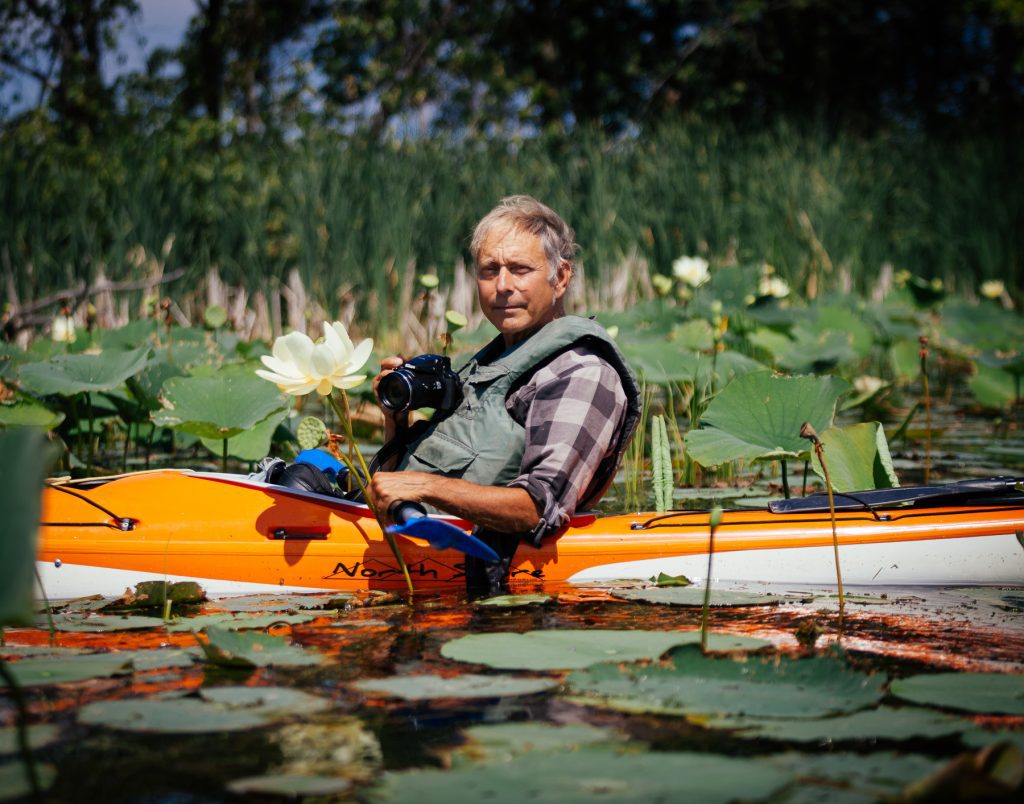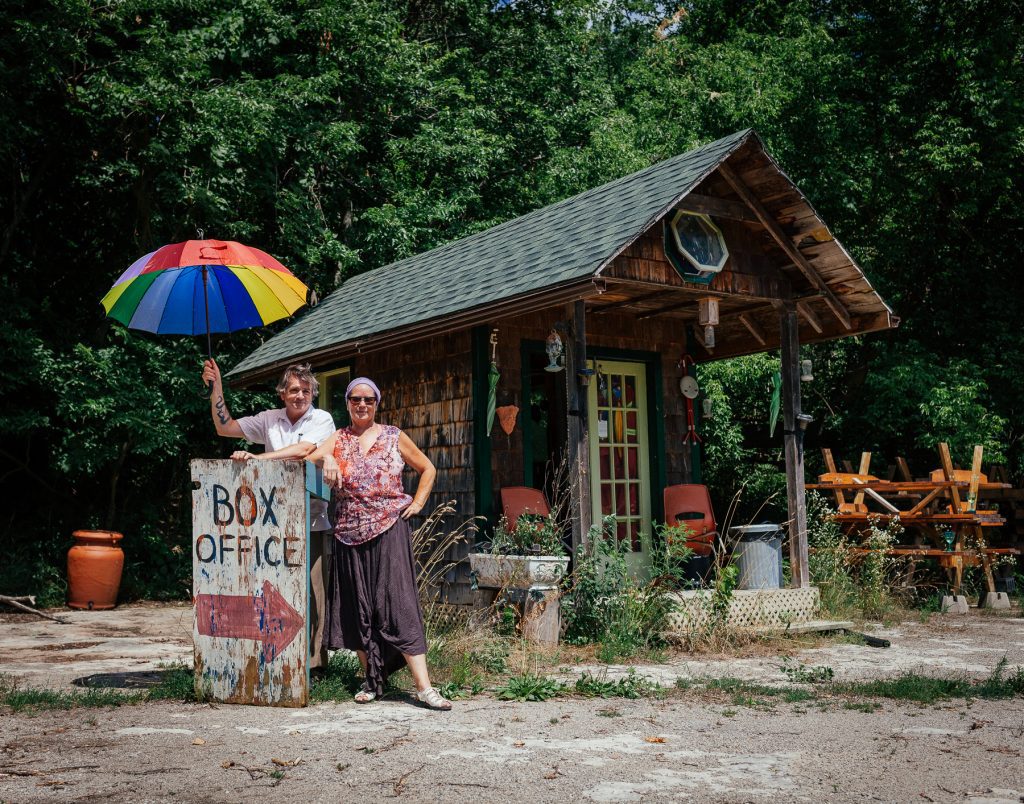In 1984, the commercial fishing regulators introduced individual harvest quotas for each species of fish. In turn, many larger operations bought the quotas of smaller operations on Lake Erie. Unlike most people fishing on the lake, Todd kept fishing as an independent owner/operator. He figures about 40 per cent of the lake’s fleet today is still independent.
MEET THE PEOPLE
- Patricia – Pelee Island
- Heidi – Pigeon Bay
- Carrie Ann and Janne – Leamington
- Lisa – Leamington
- Mohamad – Leamington
- Sandra – Leamington
- Anthony – Kingsville
- Todd – Wheatley
- Ken – Shrewsbury
- Michelle – North Buxton
- Todd – Port Stanley
- Julia – Stratford
- Nandita – Waterloo
- Charlie – Guelph
- Mat & Melissa – Norfolk County
- John & Jan – Long Point
- Holly – St. Williams
- Gregary – Niagara
- Fred – Port Colborne
- Robin – Oshawa
Todd – Wheatley
Story and images by Colin Boyd Shafer
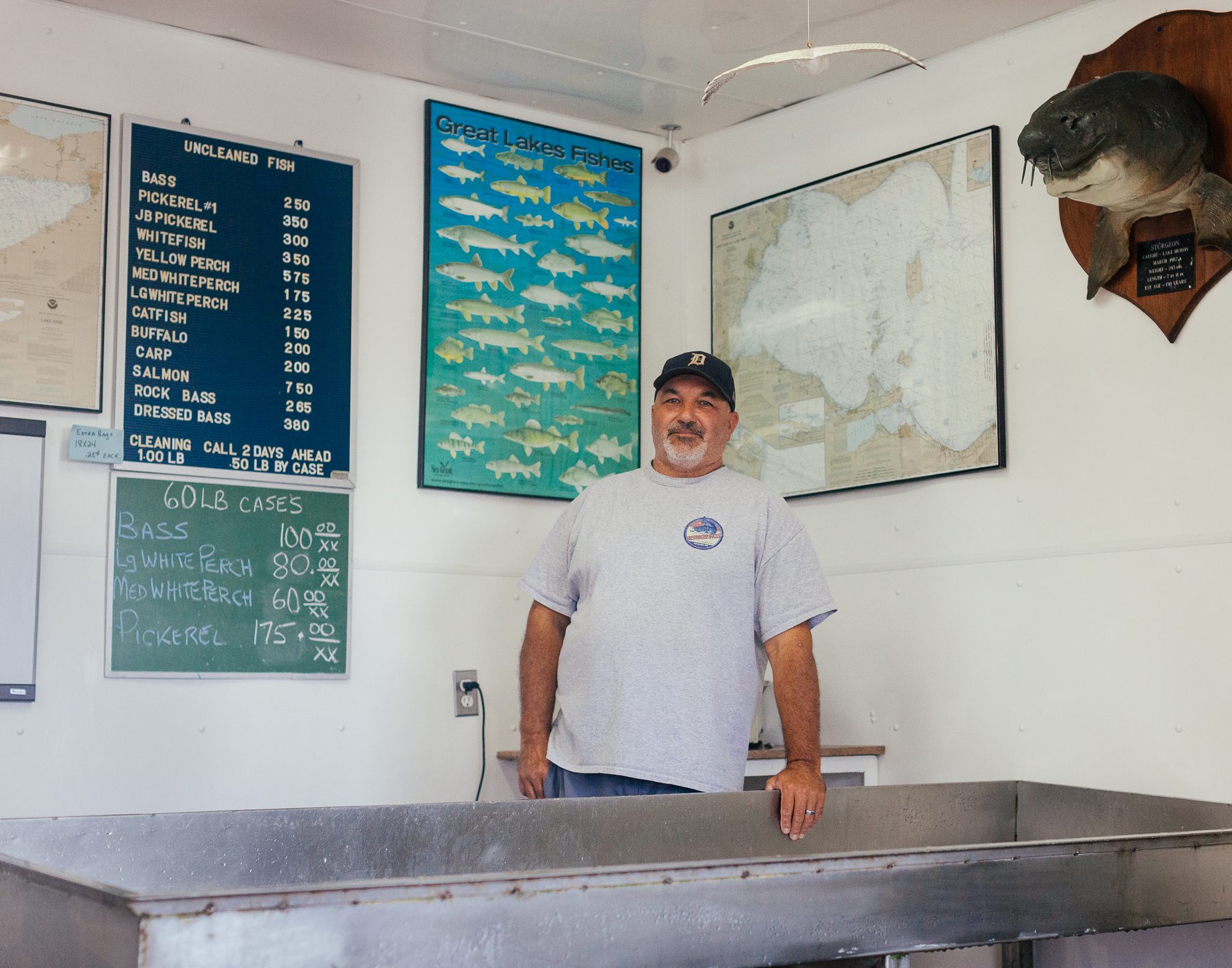
Todd is a third-generation fisherman. His grandpa Warren started running a boat out of Wheatley, Ont. in the 1940s. His father Ken tried working at a bank, didn’t like it, and returned to fishing. Todd began to fish full-time in 1980 after graduating high school. He worked on both his uncle and his father’s boats, and in 1984 Todd became a boat captain.
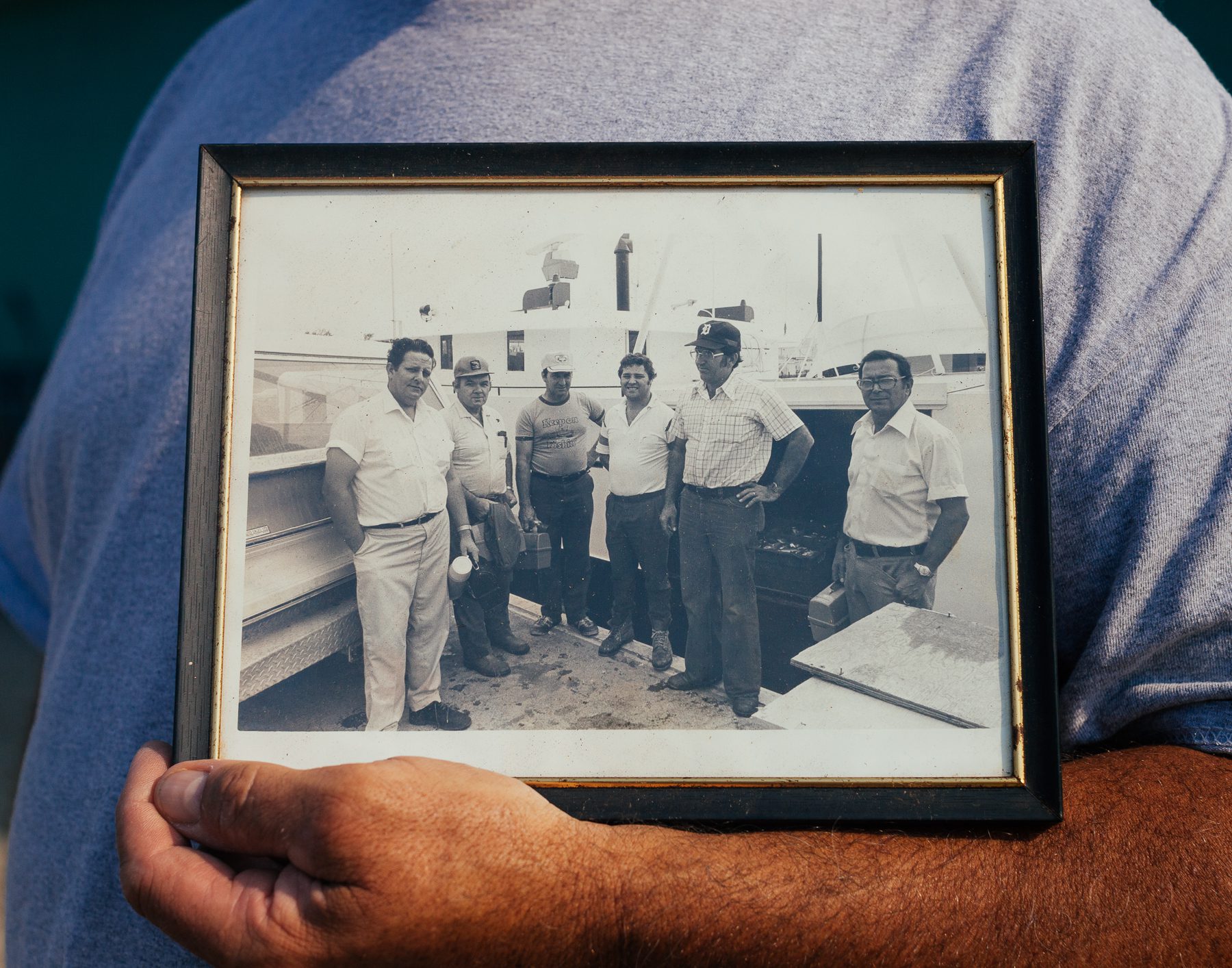
Todd’s father (second from the right) and uncle Murray (third from the left) formed Loop Fisheries in 1969 but only stayed open for a few years. The mercury scare of the early 1970s was a tough time for their family. Nobody wanted to eat the pickerel they caught, believing it was toxic. In 1977, Todd, at the age of 15, reopened Loop Fisheries.
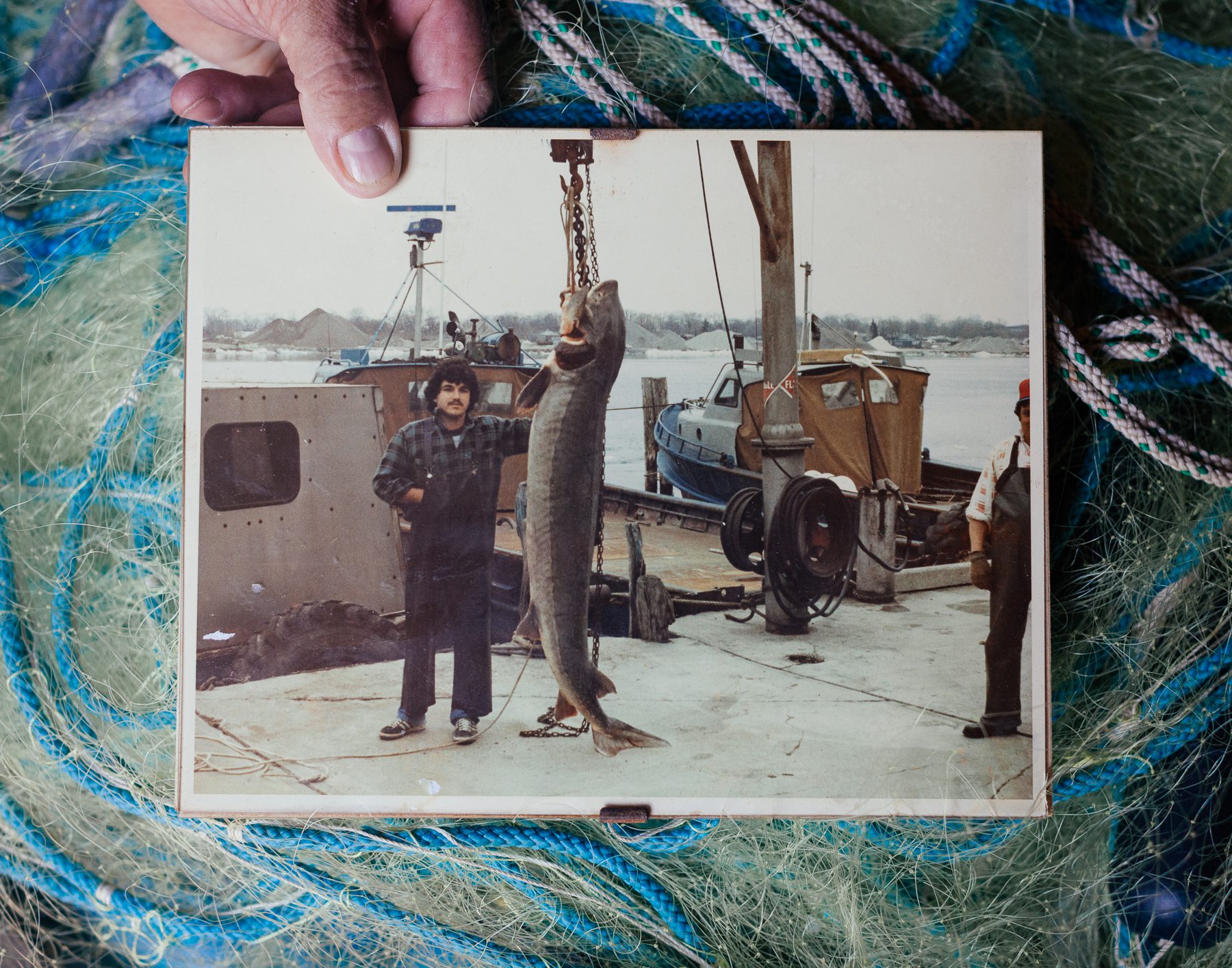
Todd, in 1982, stands with a giant sturgeon they caught when he worked on the deck of his father’s boat.
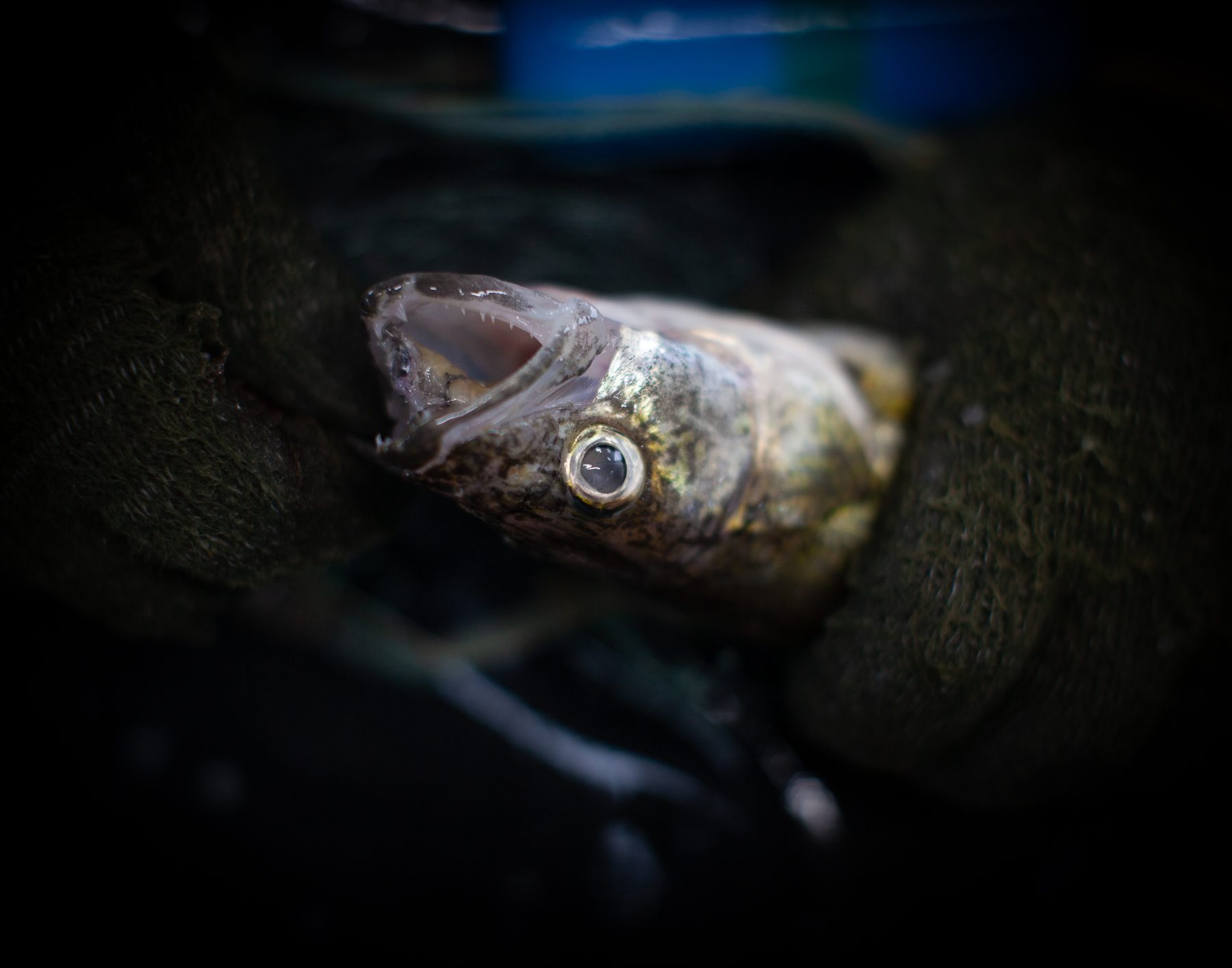
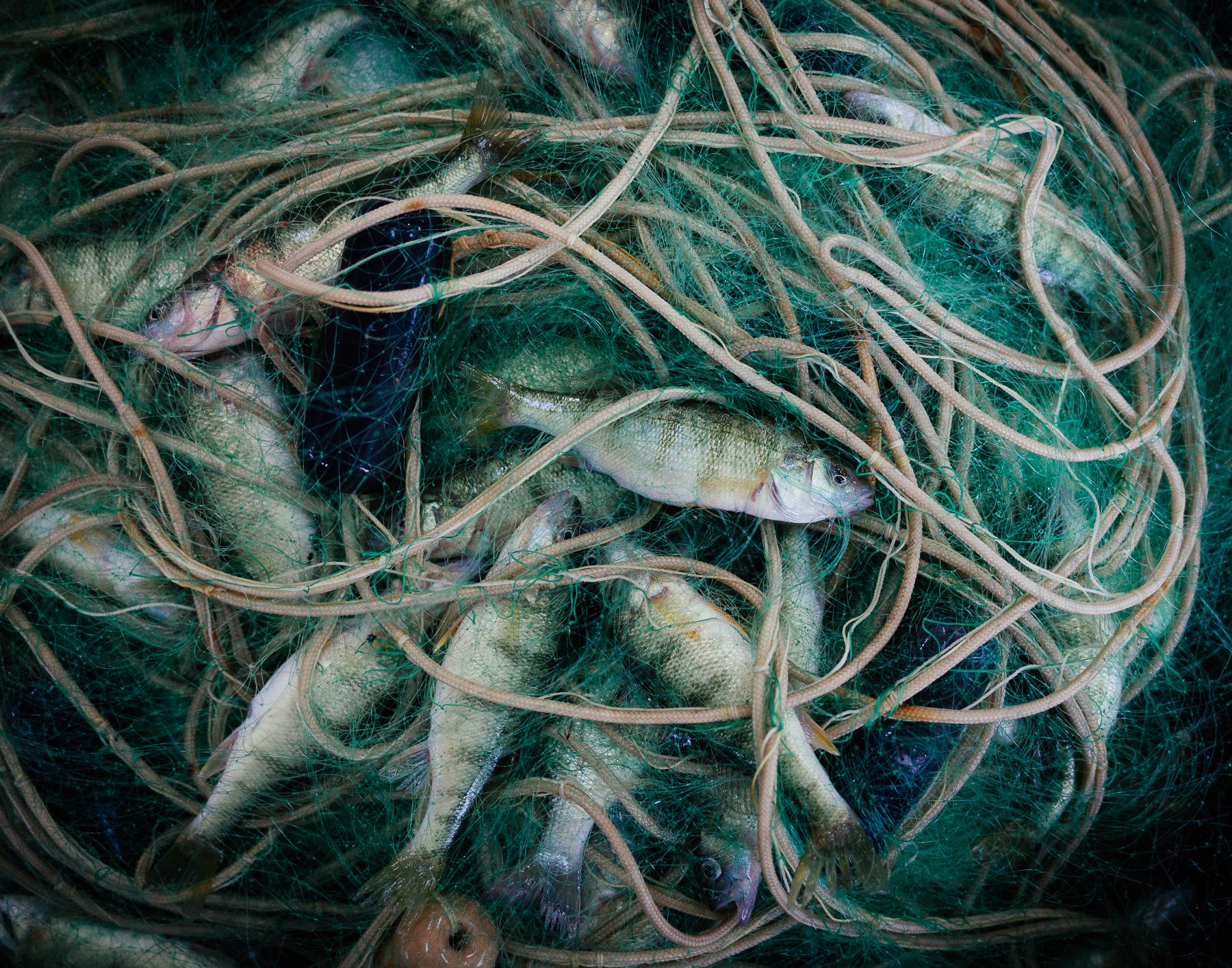
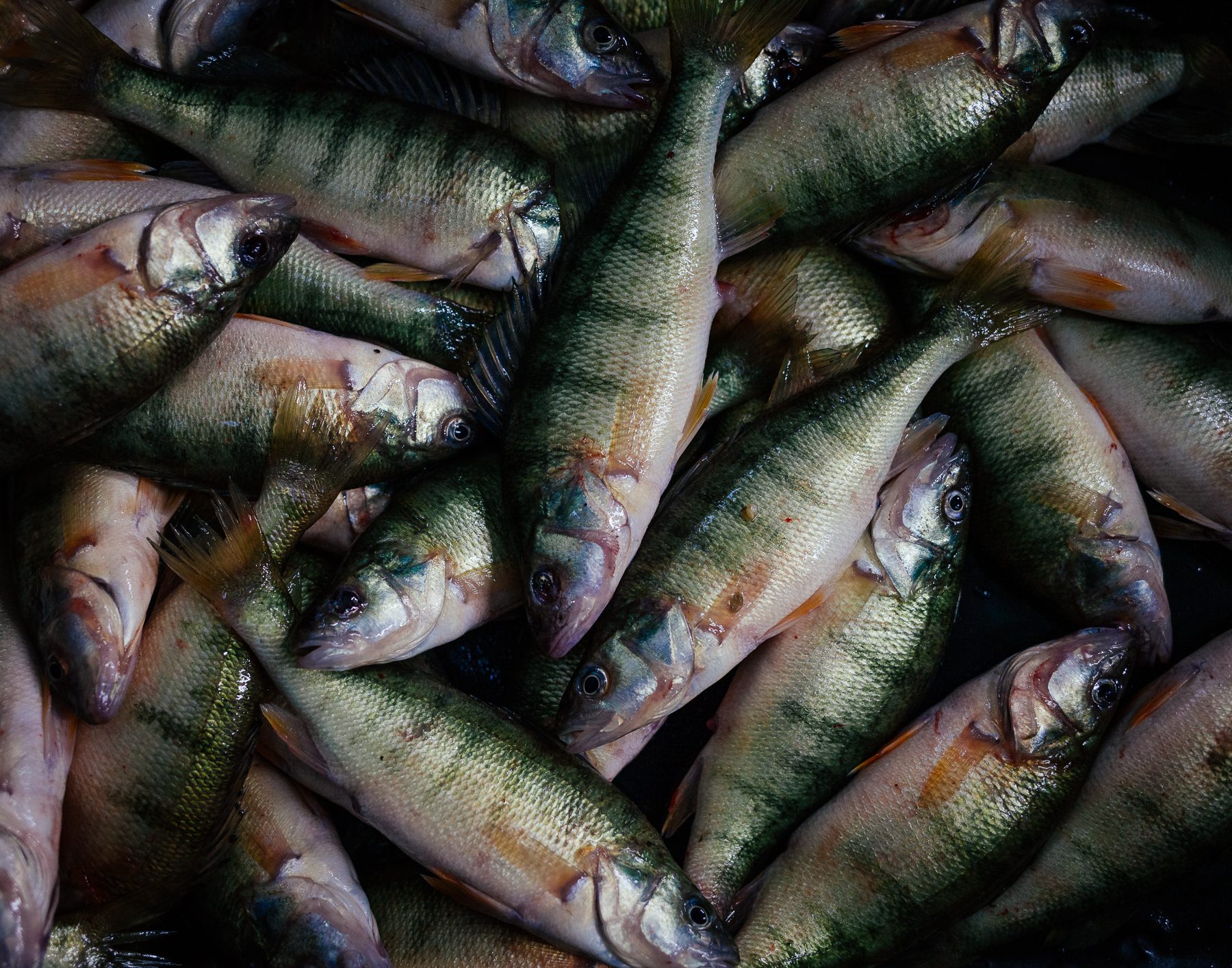
Most of the fishing Todd does is for pickerel (called walleye in the US) and yellow perch. They also catch some white perch, silver bass, and catfish. Todd sells about three-quarters of the fish he catches to a fish company and sells the rest at his store in Wheatley.
Todd has had some tough times over the years fishing Lake Erie. The late 80s and early 90s were incredibly challenging. Some years, the perch numbers were way down, so he couldn’t meet his perch quota, while the pickerel were plentiful, but he couldn’t fish for more of them because he had surpassed his pickerel quota. Other years, it was the opposite. Recently, the pickerel population has been up (maybe the best Todd can remember), while the perch population is down. Todd explains how this cycle is standard —when one species is up in the lake, the other seems to be down.
“Many people think fishing is like a tap. You just come out here and turn it on, but it’s not like that. You might get three good days out of a week.”
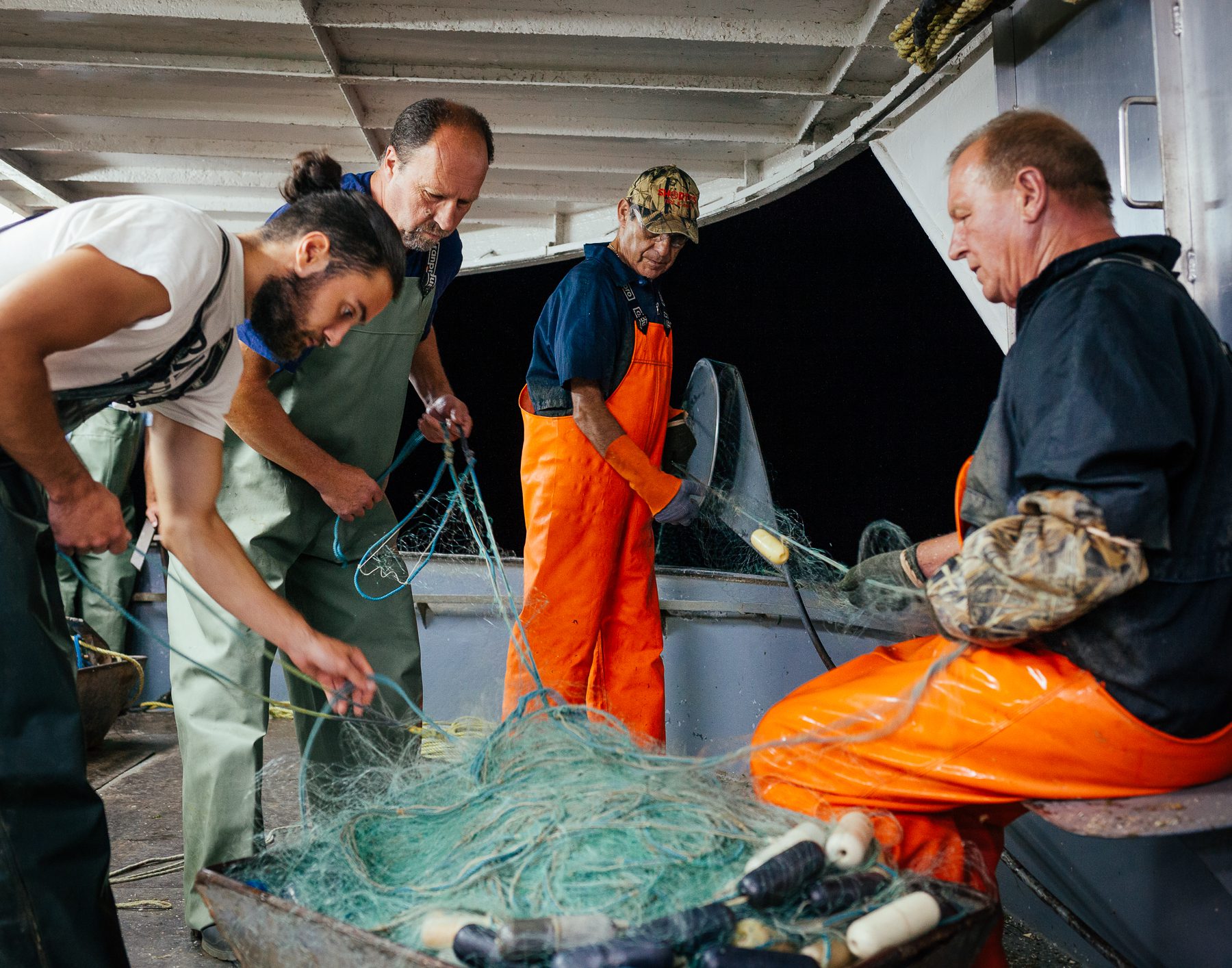

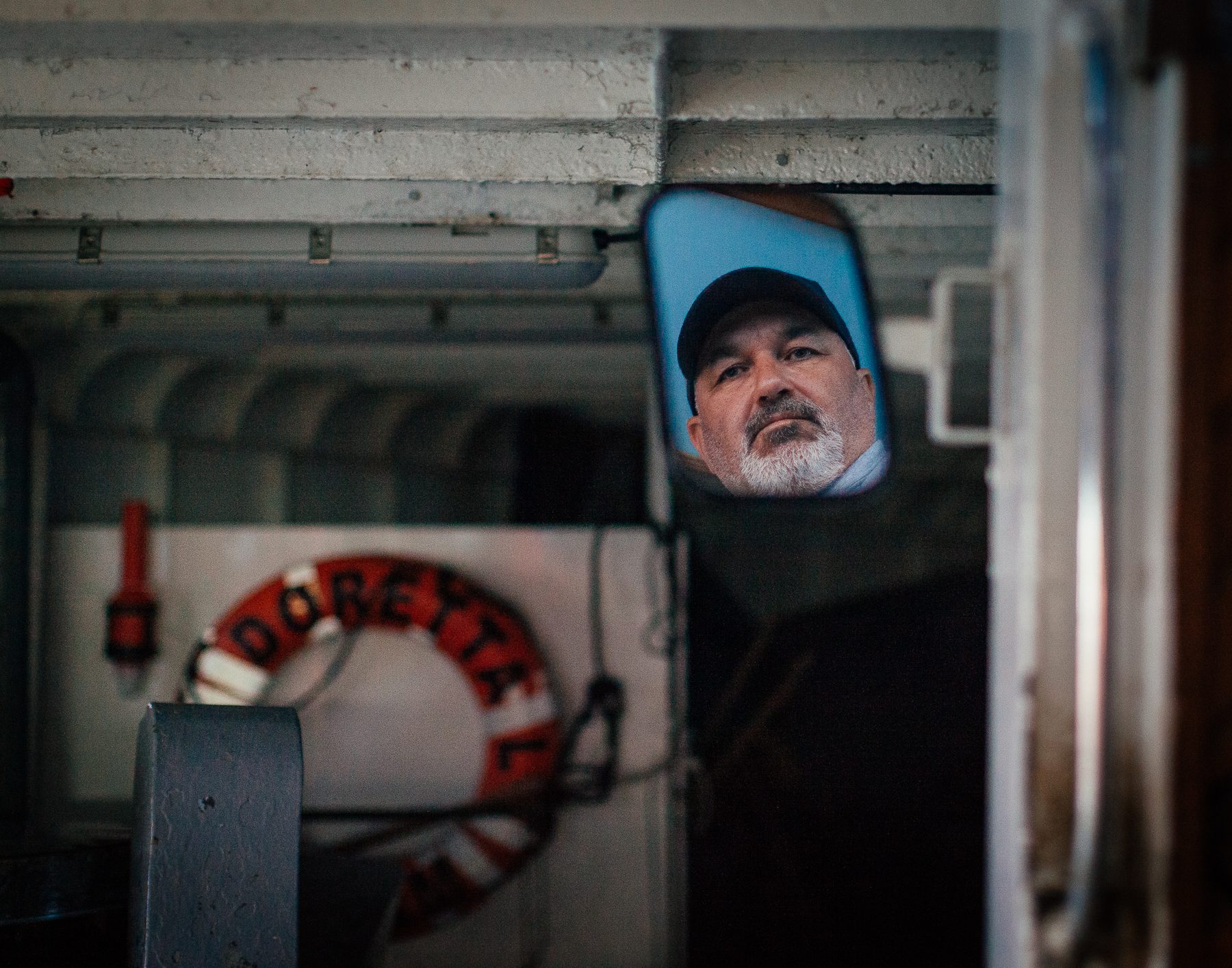
(top) As the sun rises, Todd’s crew set the nets. (bottom) In the rearview mirror, Captain Todd watches to ensure the net is being set smoothly (which relies on the symbiosis of Todd’s driving and the crew’s skill). In the months when the lake’s water is colder, they can leave the nets overnight, but when the water is warmer, they set and pull the nets in the same day (so the fish are fresh).
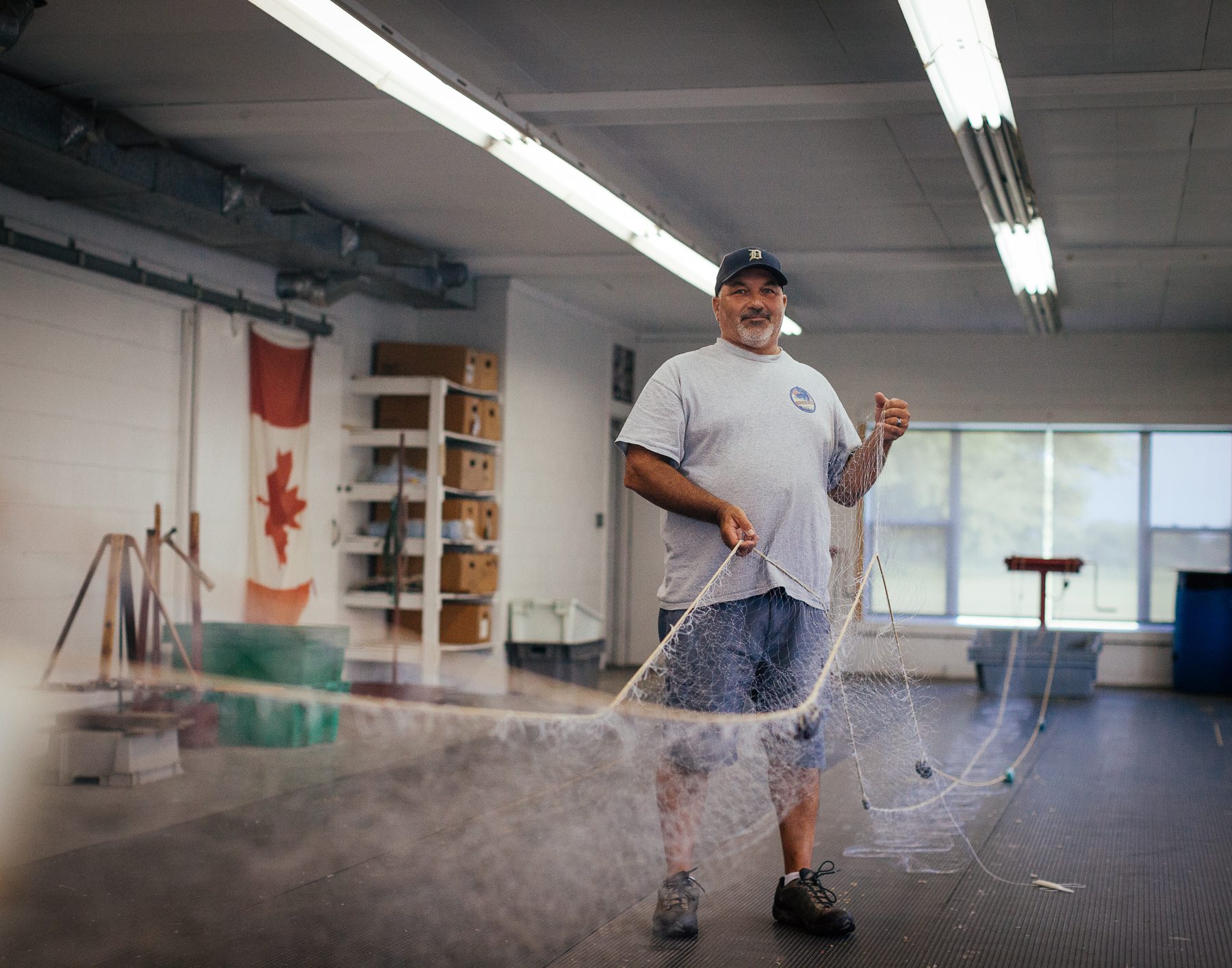
Todd stands where net repairs take place at Loop Fisheries.
Todd works 10 months, most years, from March until Christmas. In his off months, he is doing net repair and getting the boat ready for another year. Todd's typical workday consists of waking up around three in the morning and departing from Kingsville harbour at 4 a.m., returning in the early afternoon. After fishing, he heads to his store in Wheatly, where he is until early evening. He works a lot.
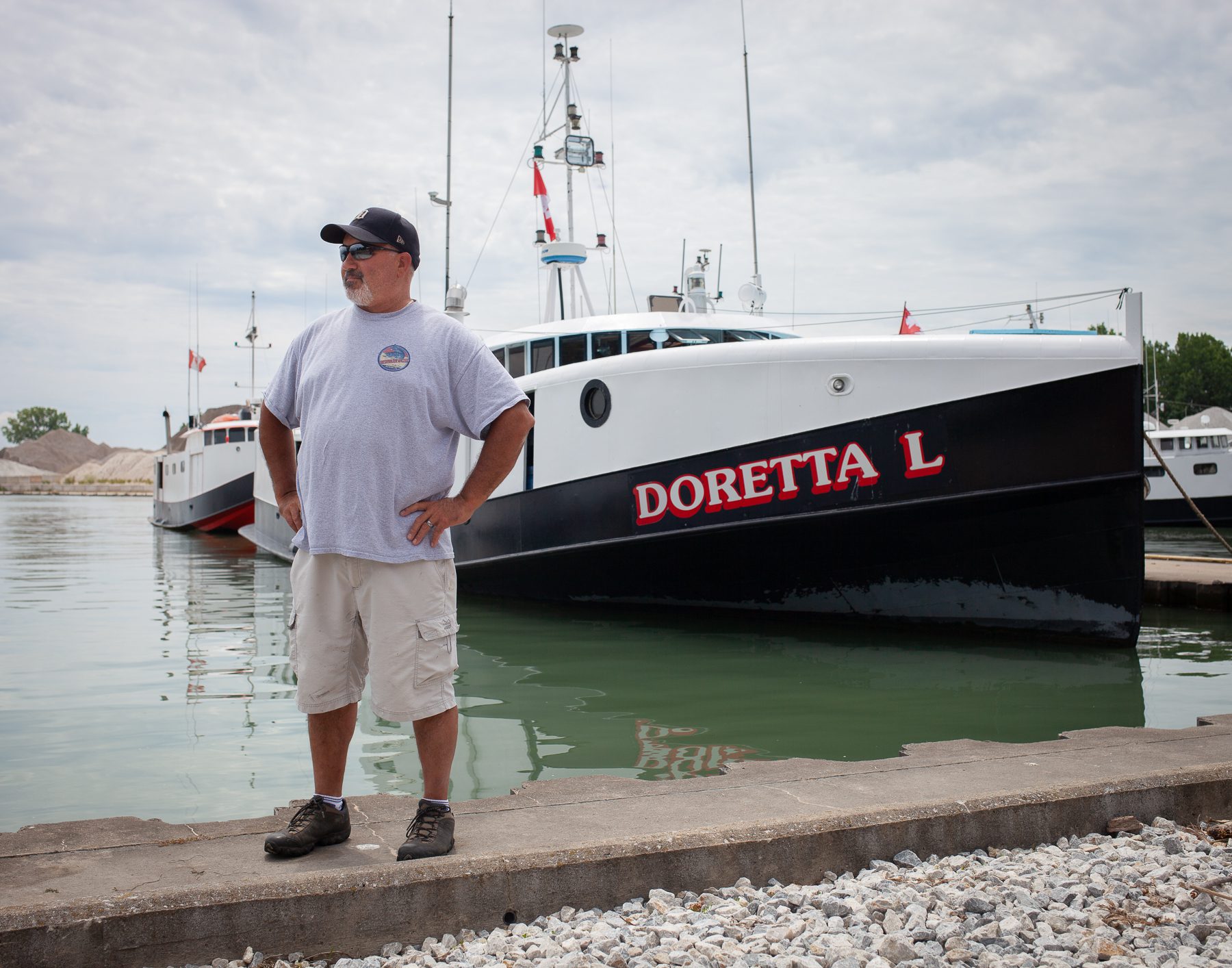
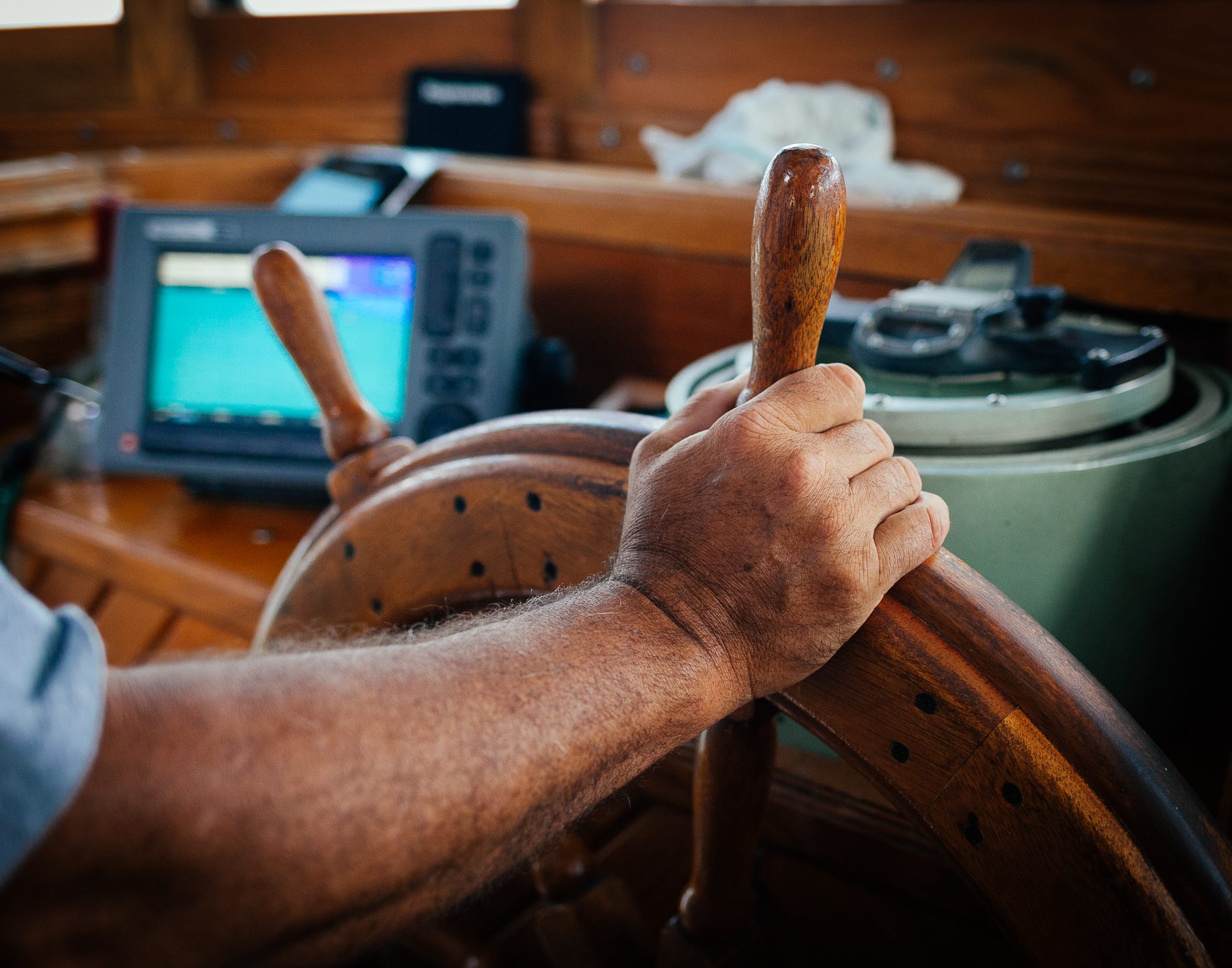
Todd stands with his boat that his father built in 1972. The Doretta L. gets its name from Todd’s grandmother. He remembers her as an “old school” woman who worked as a seamstress and mended all the local fishermen’s clothes.
Since Todd started fishing in 1980, not a lot has changed. A few electronics are more modern, but the boat he uses is the exact same boat his father used. Todd enjoys his job— fishing—but has never been one to fish for fun.
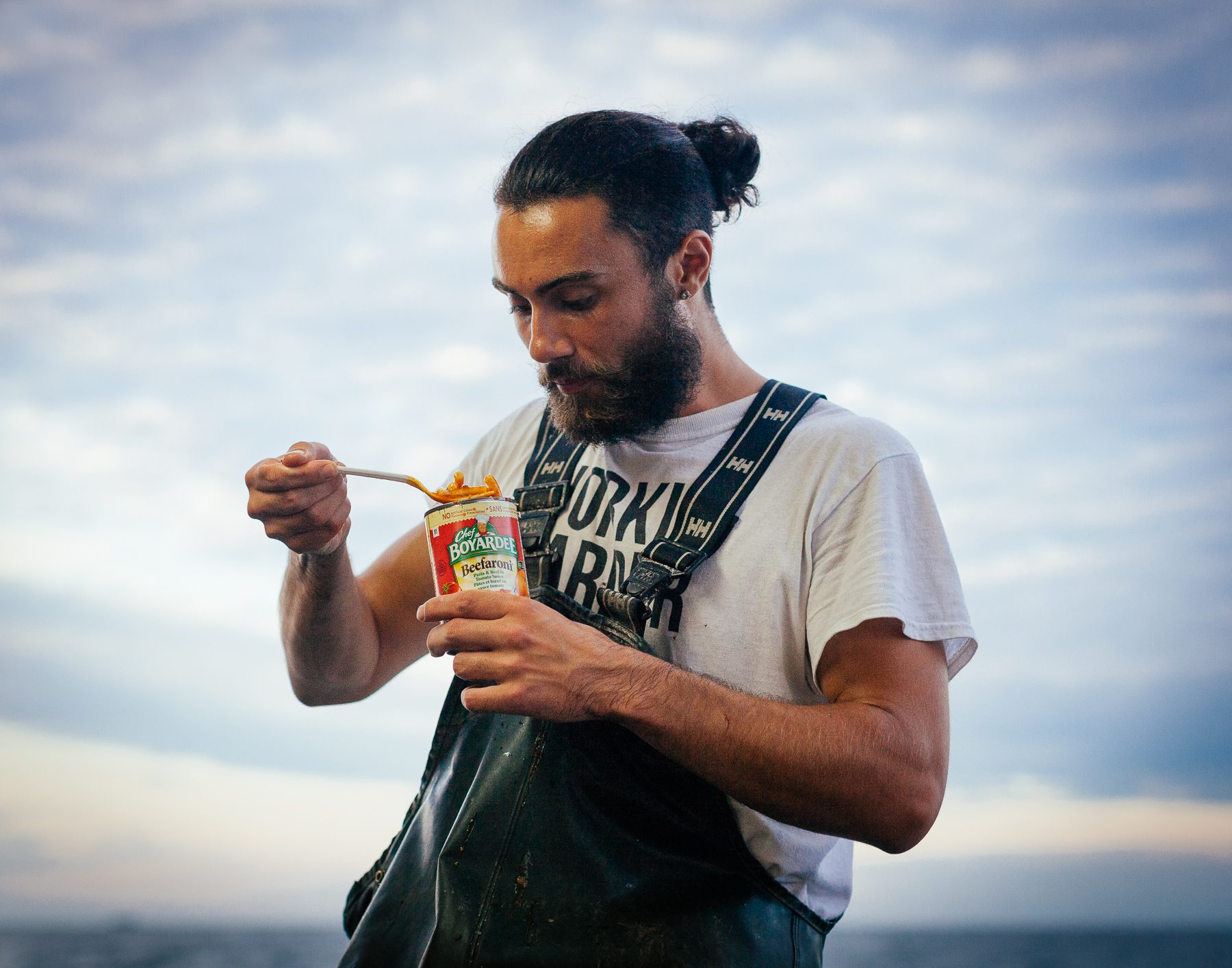
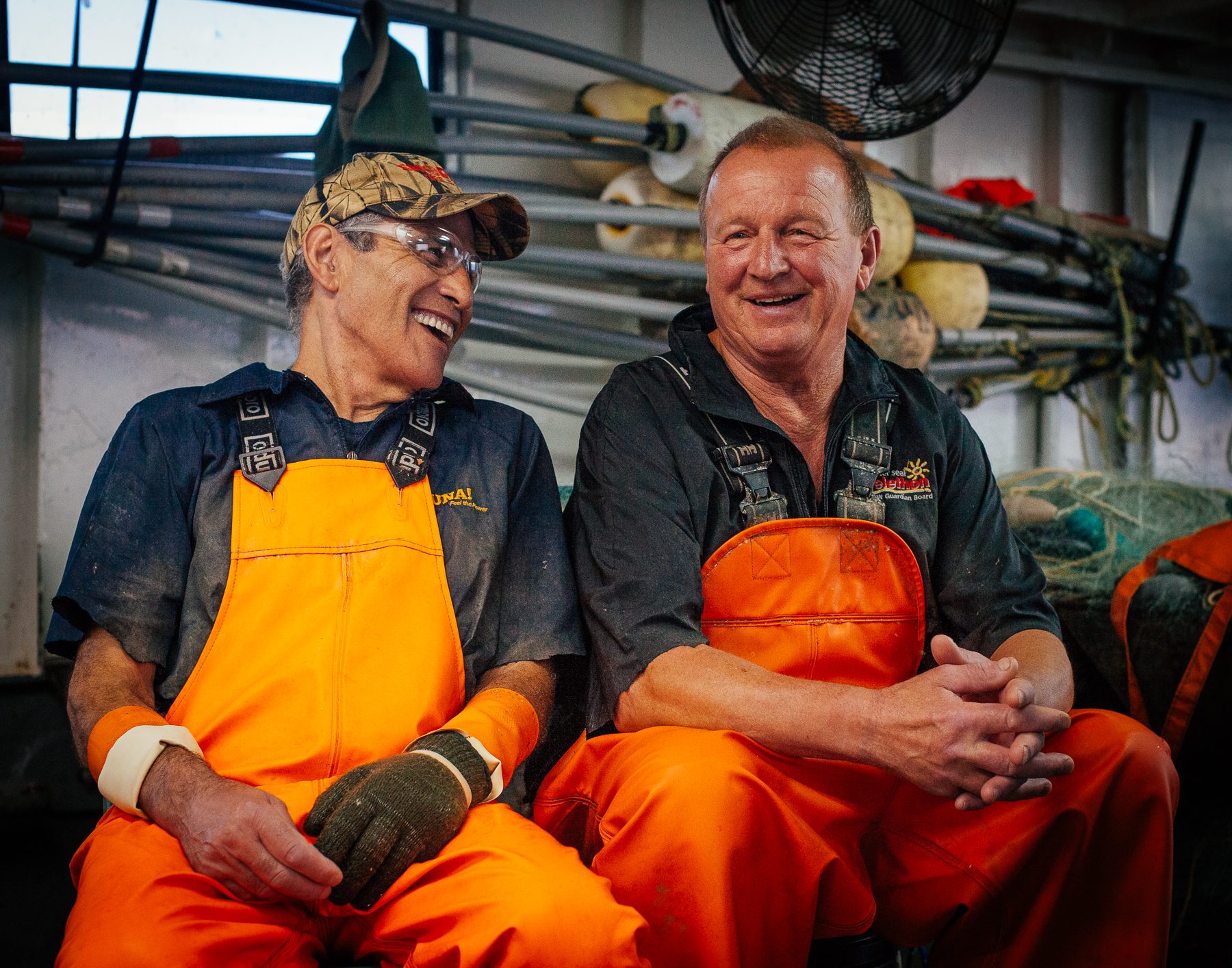

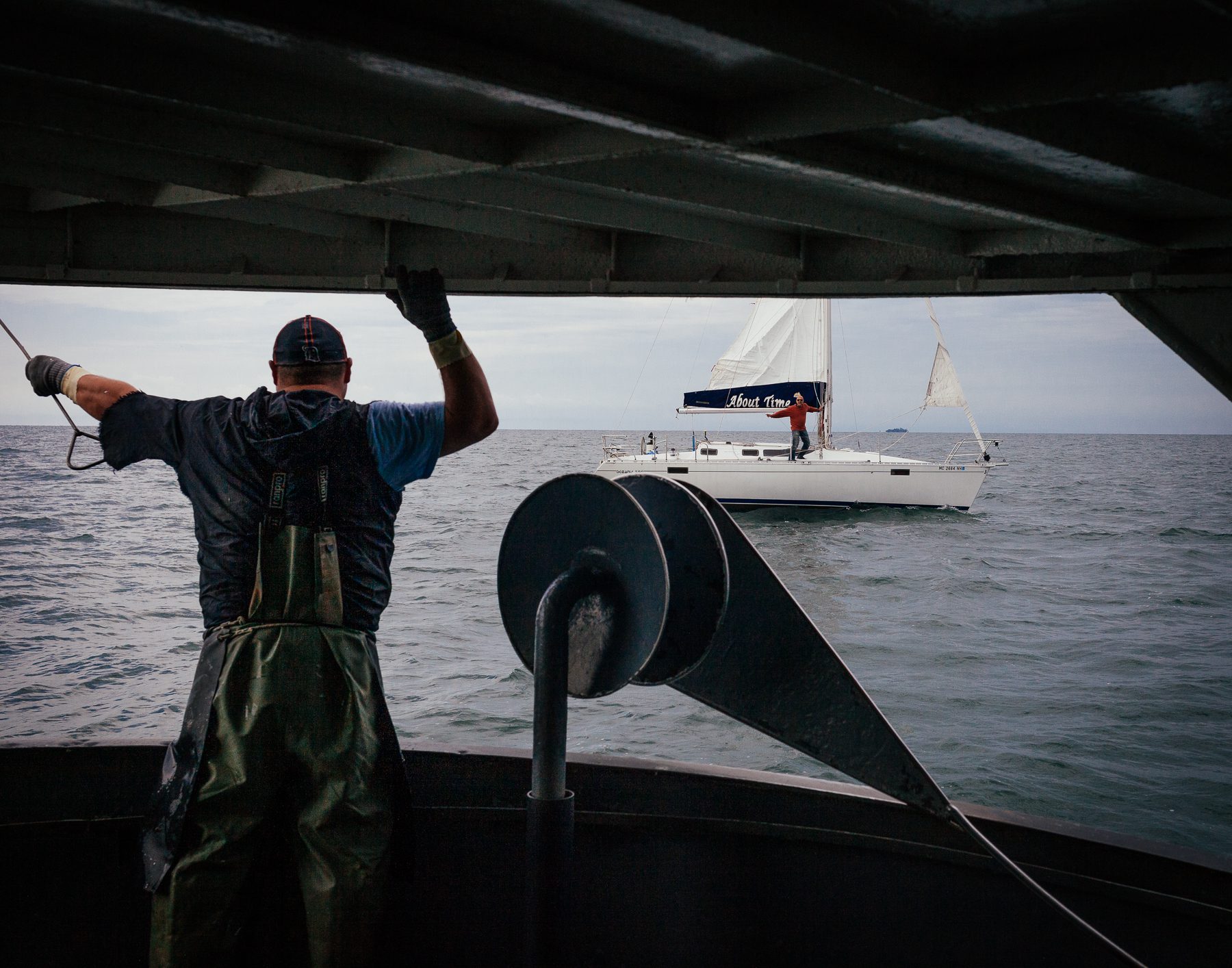
Between the time when the crew sets the nets and the time they pull them in, there is plenty of time for napping, eating, and joking around. (top left) Dilan enjoys some Beefaroni he heated by placing the can next to the ship’s engine. (top right) Orlando and Skip share a laugh. Skip (on the far right) comes from a fishing family in Port Stanley, Ont. He has fished all his life and has worked with Todd for more than a decade. (bottom left) Orlando waits as the sun rises. (bottom right) Todd’s nephew, Josh, gives directions to a lost sailboat out on the lake.
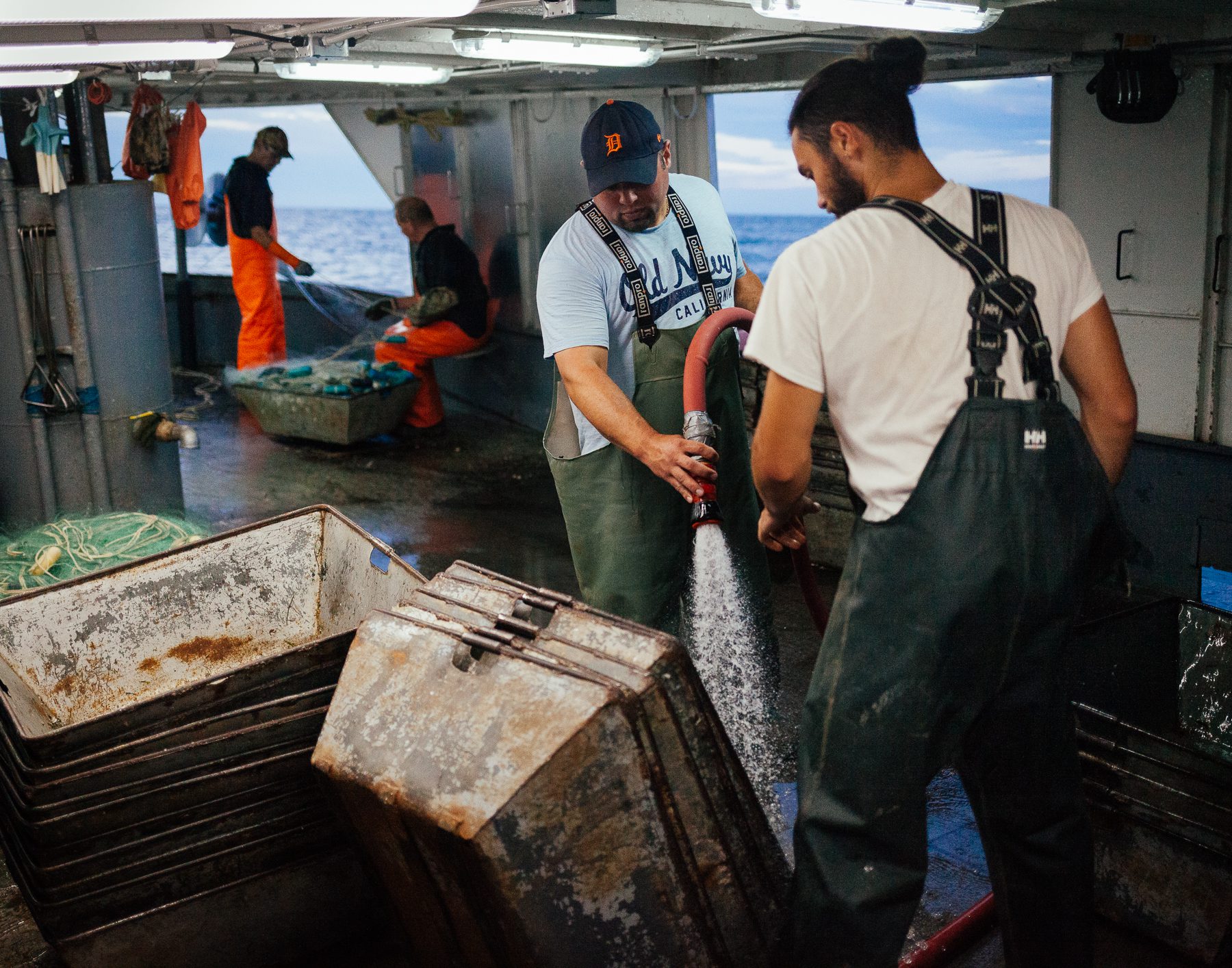
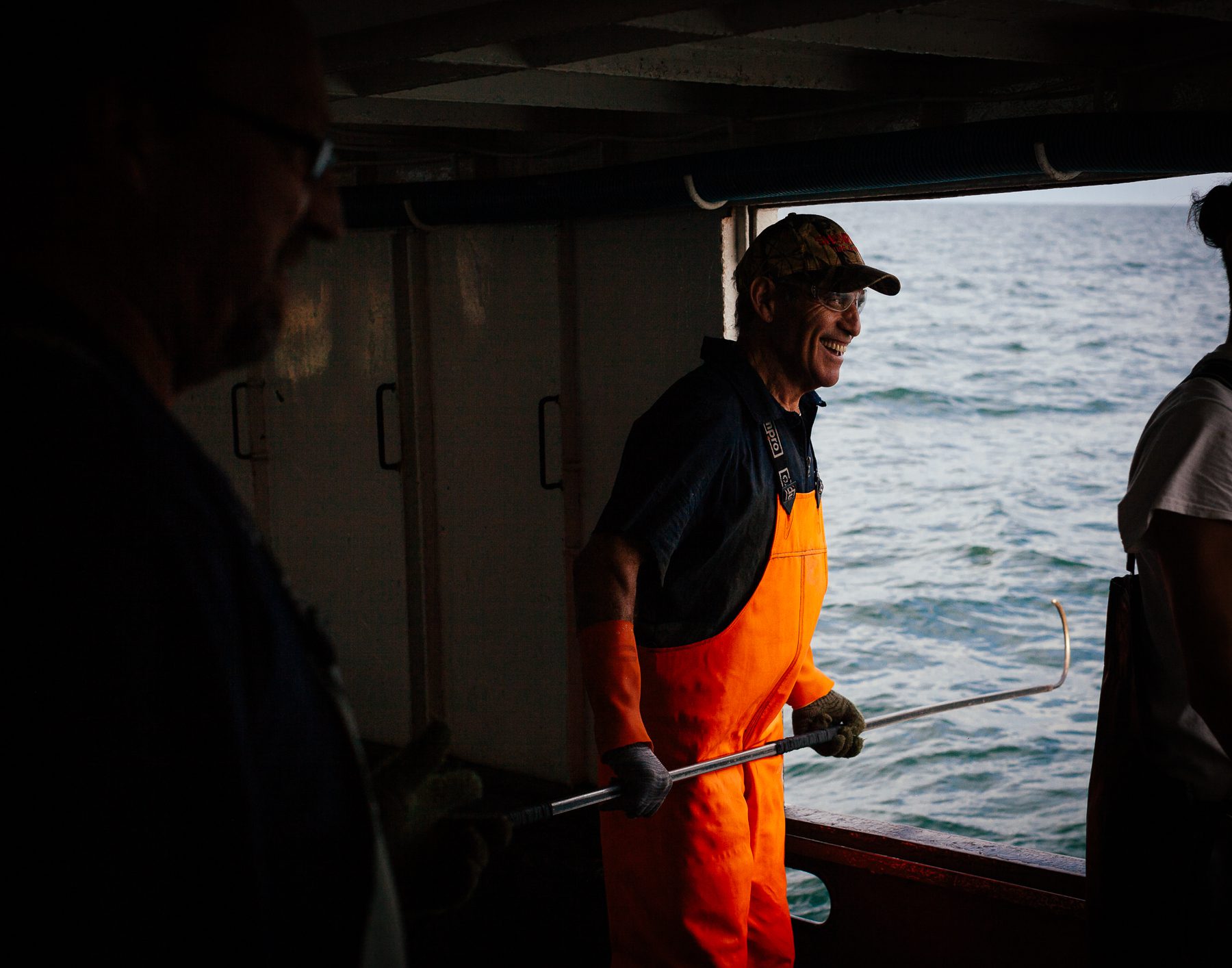
(left) As it gets closer to the time to pull in the nets, Josh and Dilan clean the trays. (right) Orlando waits to hook the net to prepare it for pulling. Orlando has been fishing with Todd since 1987. “Hiring Orlando and his brother was one of the best choices I ever made.” When Todd was a boy, he figures 80 per cent of the fishermen fishing on Lake Erie were Portuguese — some worked seasonally, and some decided to stay. Few of these fishermen’s children—the next generation—got involved in fishing. The tradition of Portuguese fishers on Lake Erie is mostly a thing of the past.
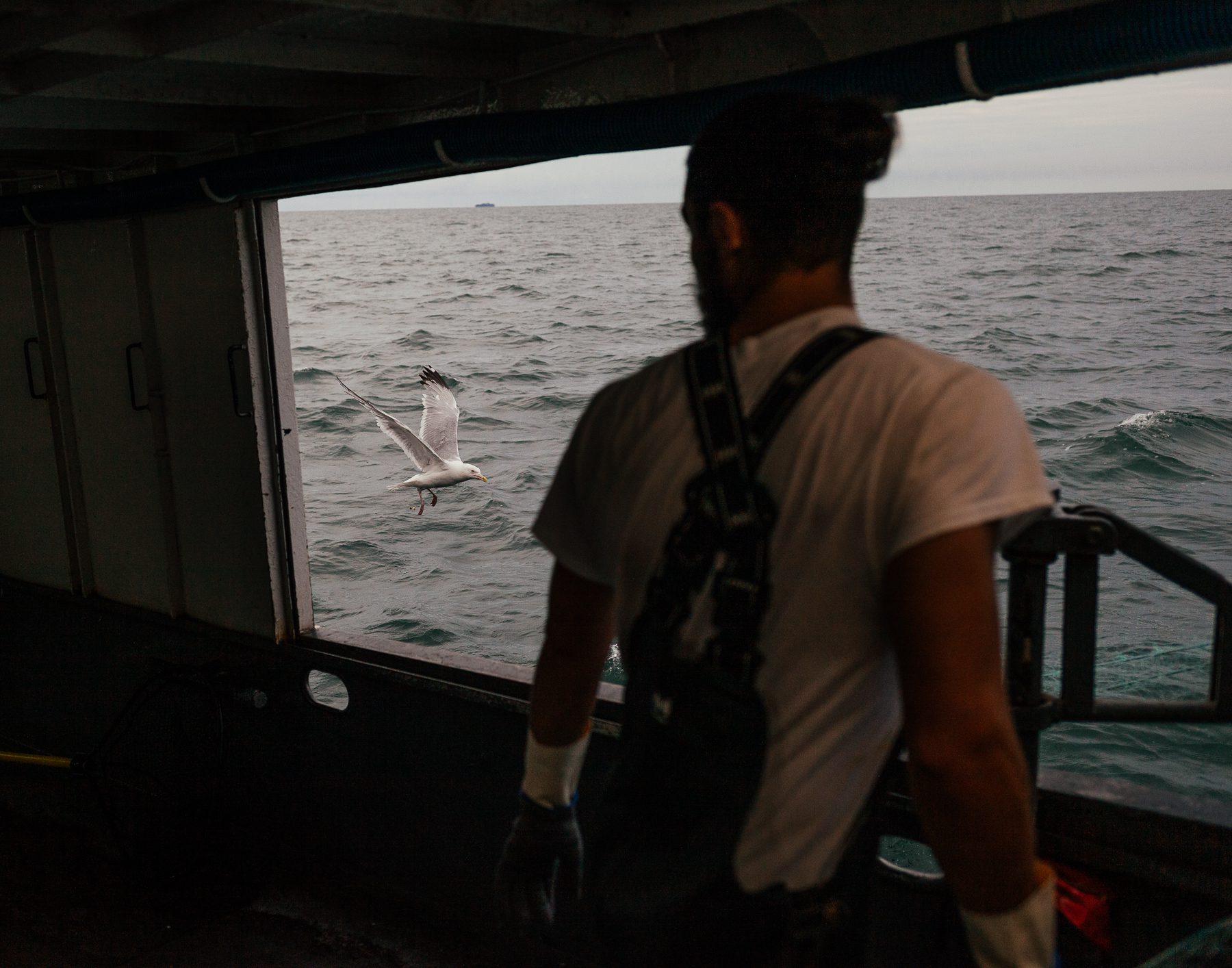
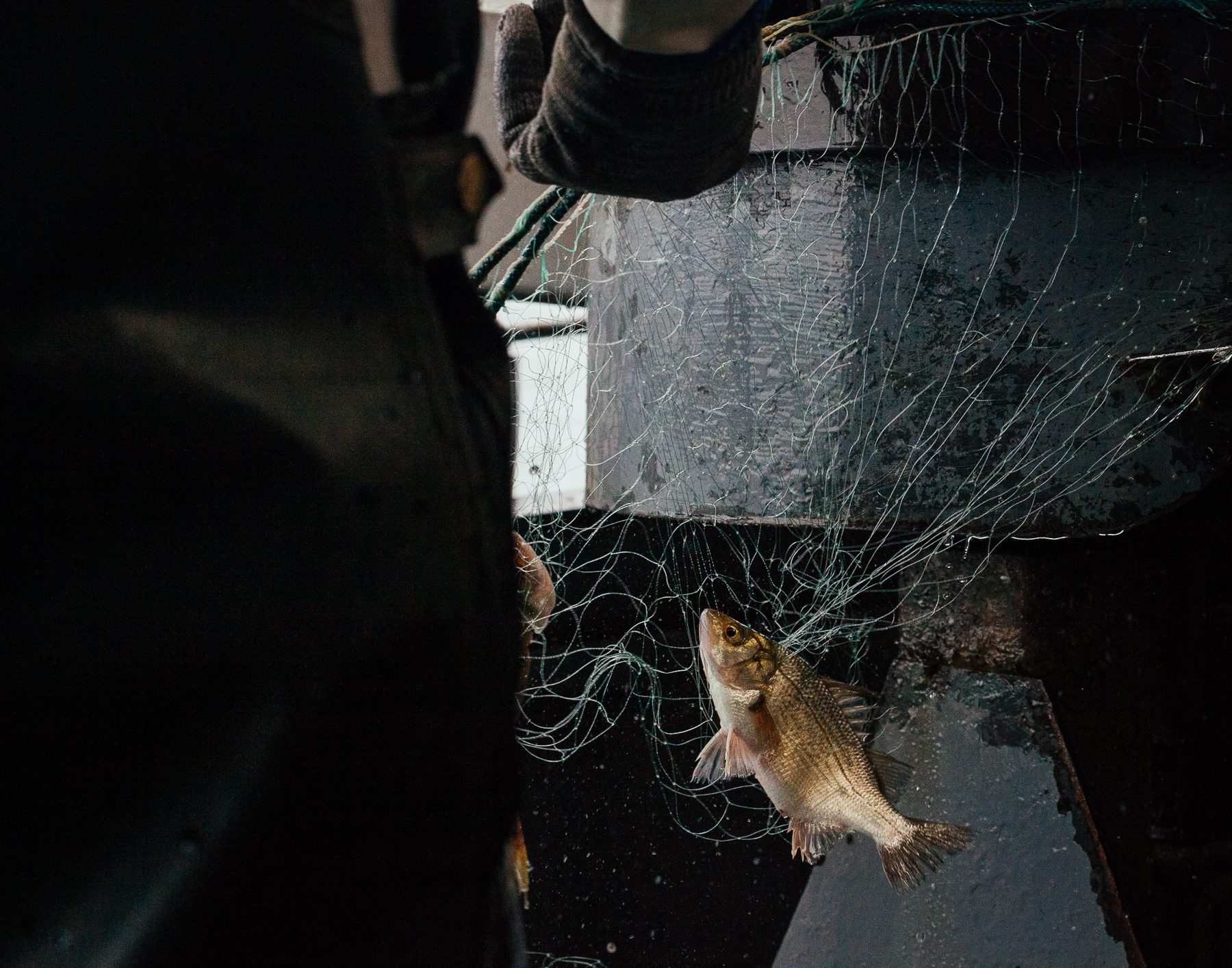
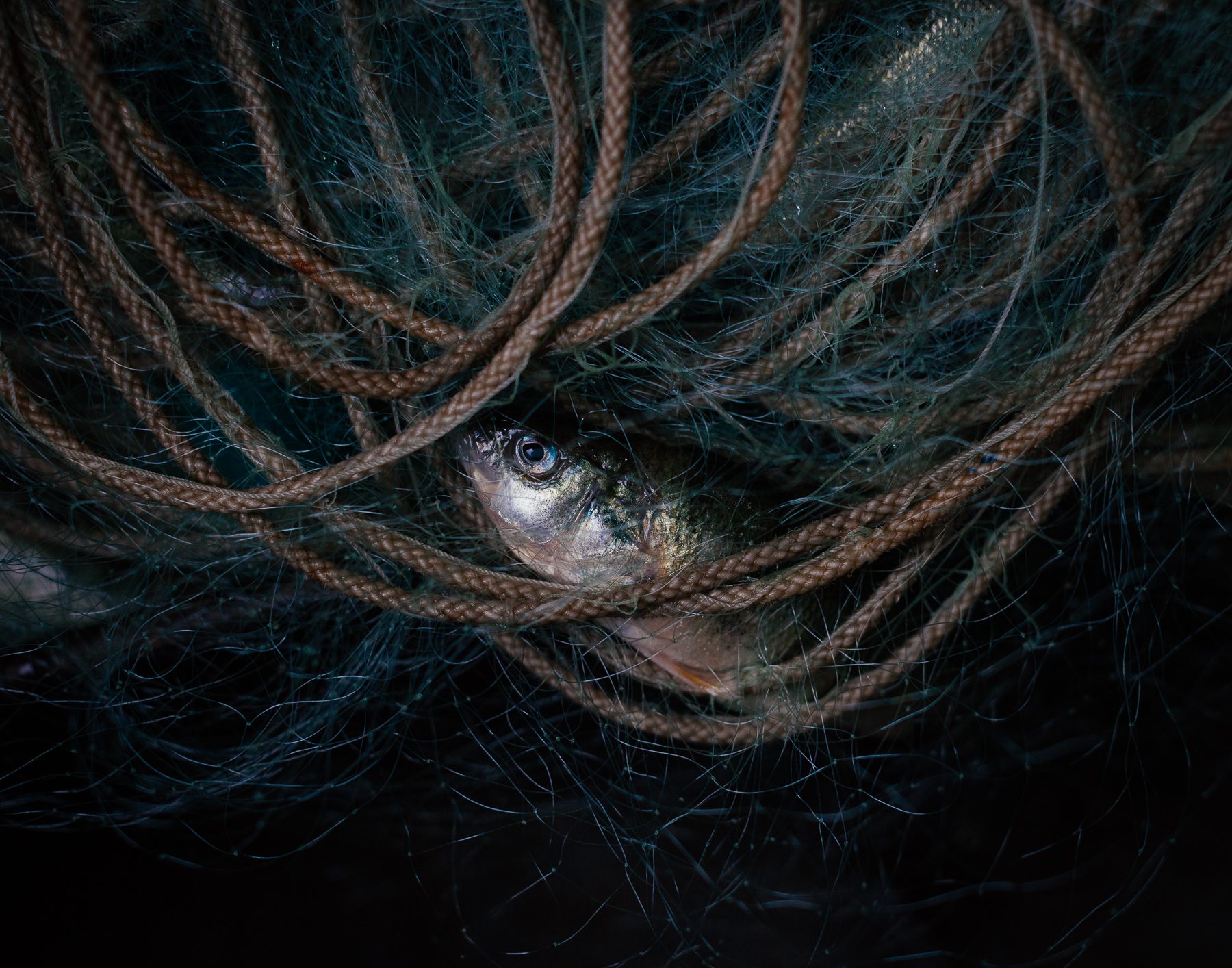
Dilan, the newest and youngest member of the crew, is their “puller boy.” He is in charge of bringing in the nets, a job that is physically taxing. Todd jokes that Dilan has “got lots of nicknames, but you probably can’t print half of them!” Todd is impressed with Dilan’s work ethic: “He hasn’t missed a day. He’s not scared to work. He’s getting better every day.”
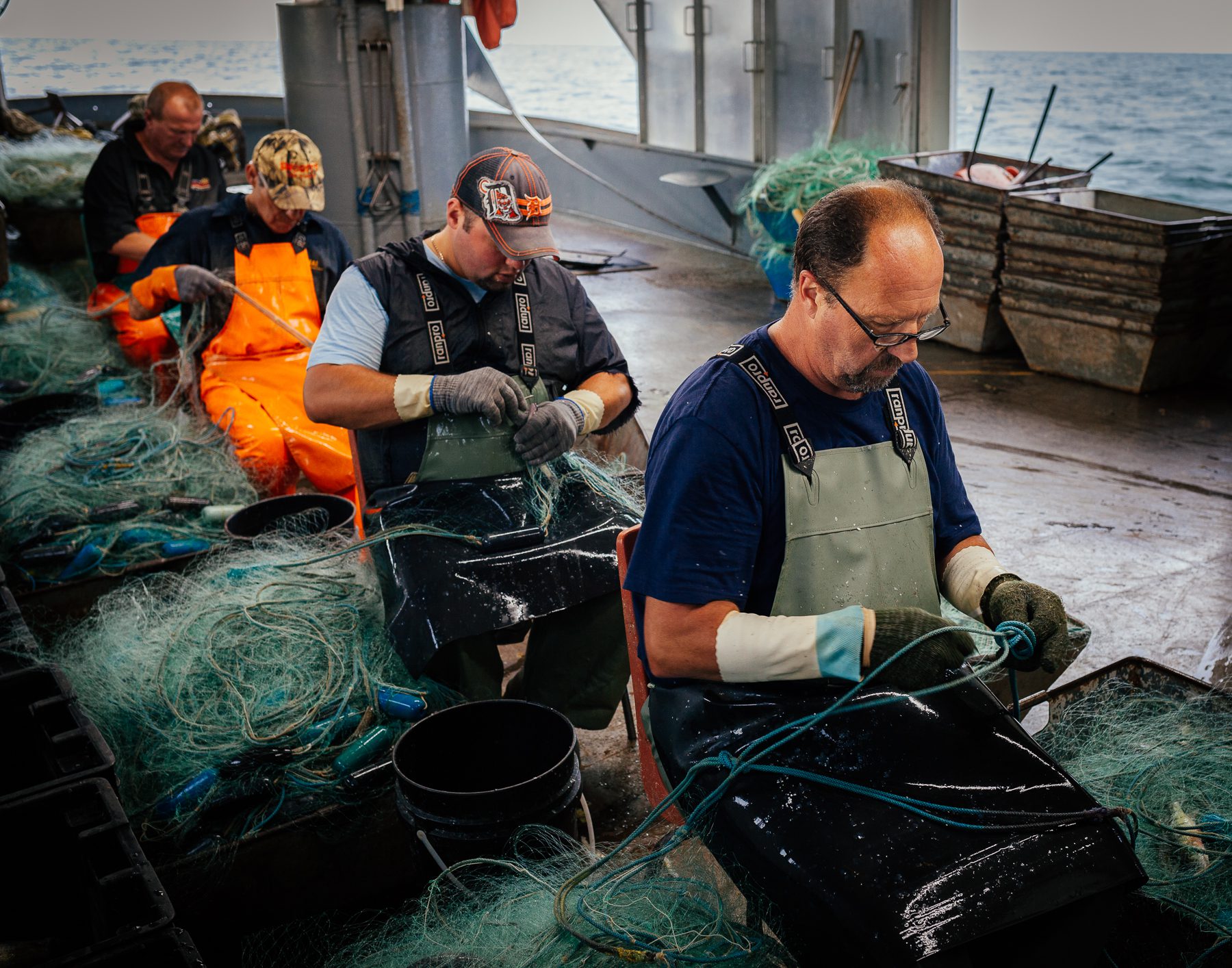
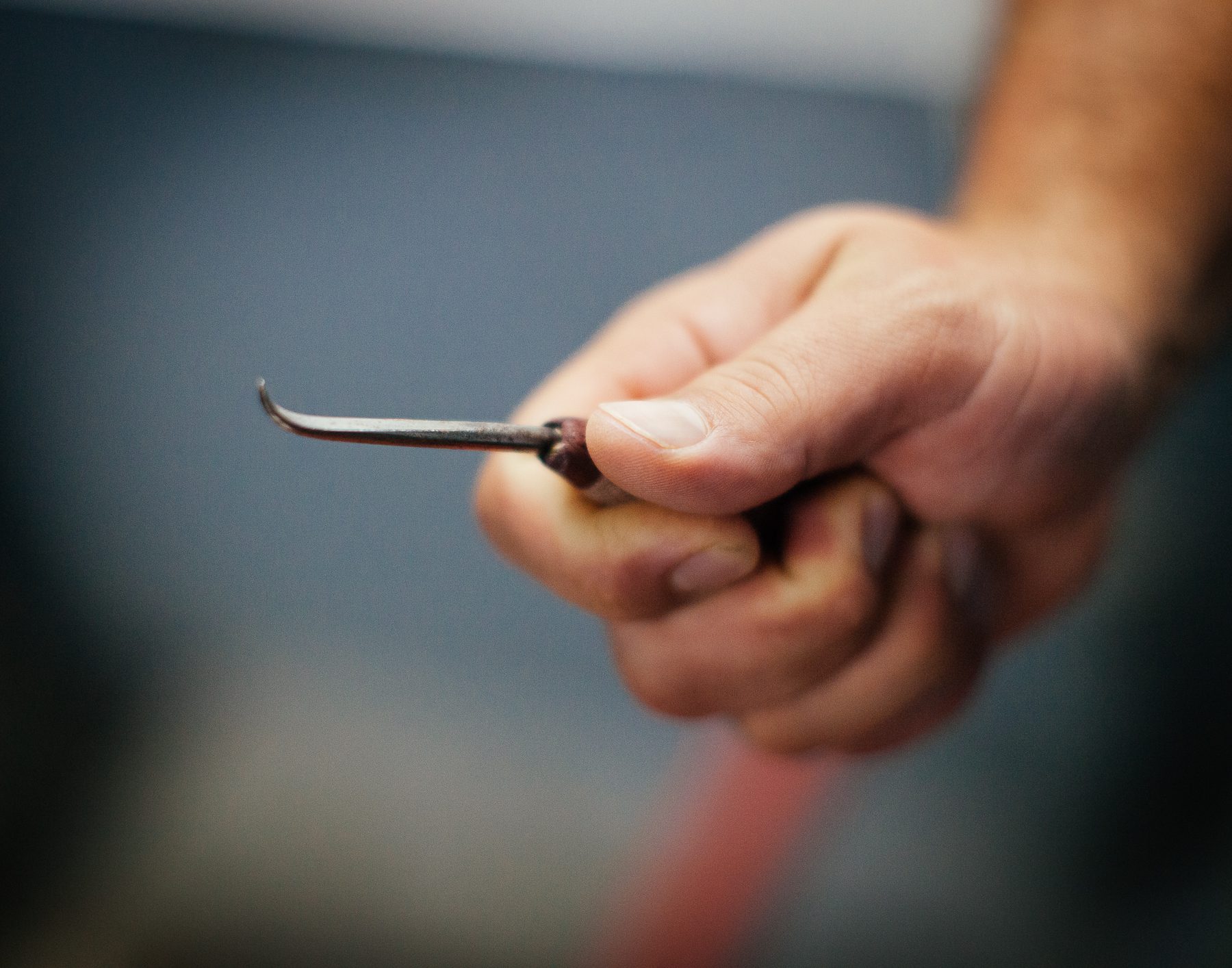
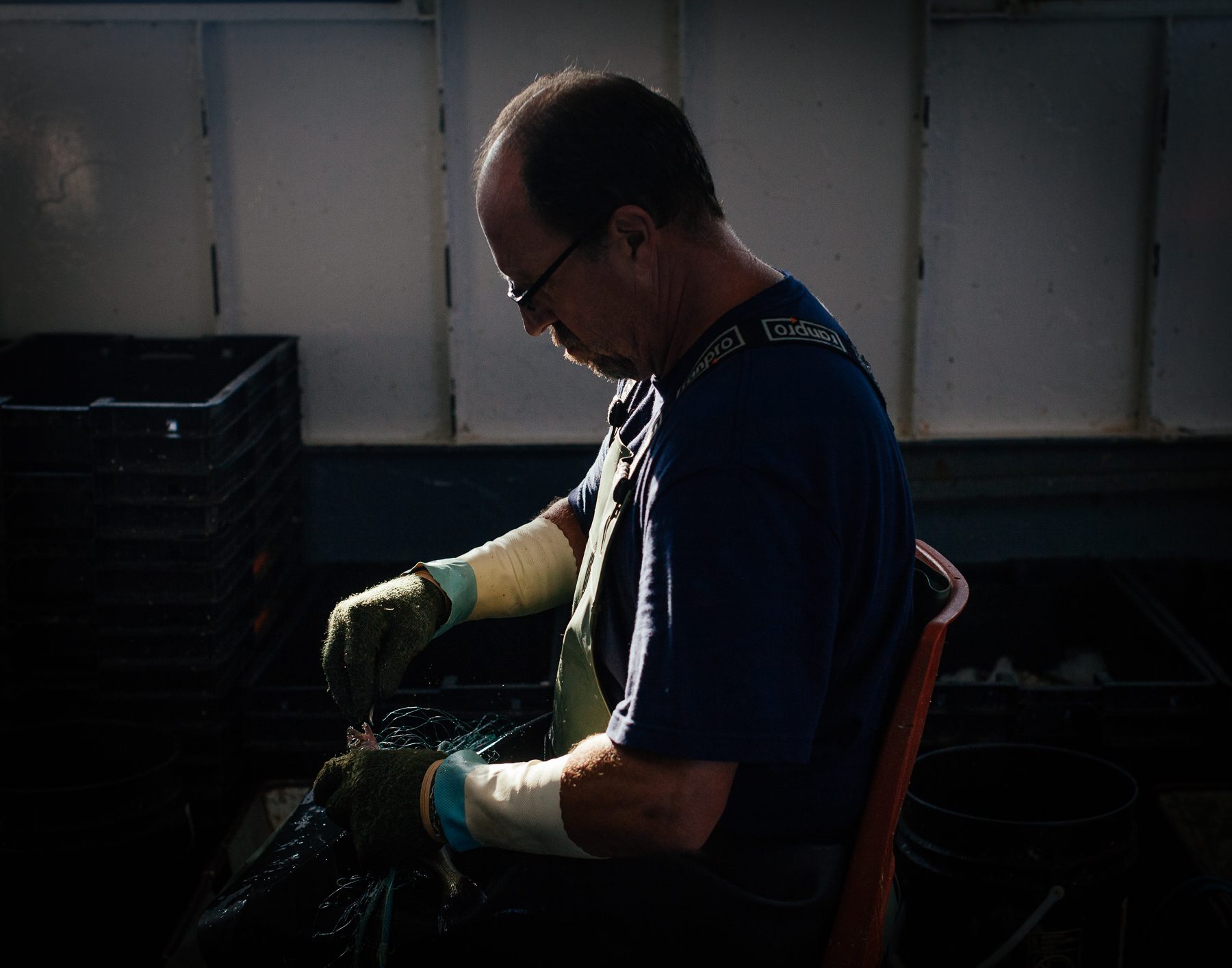
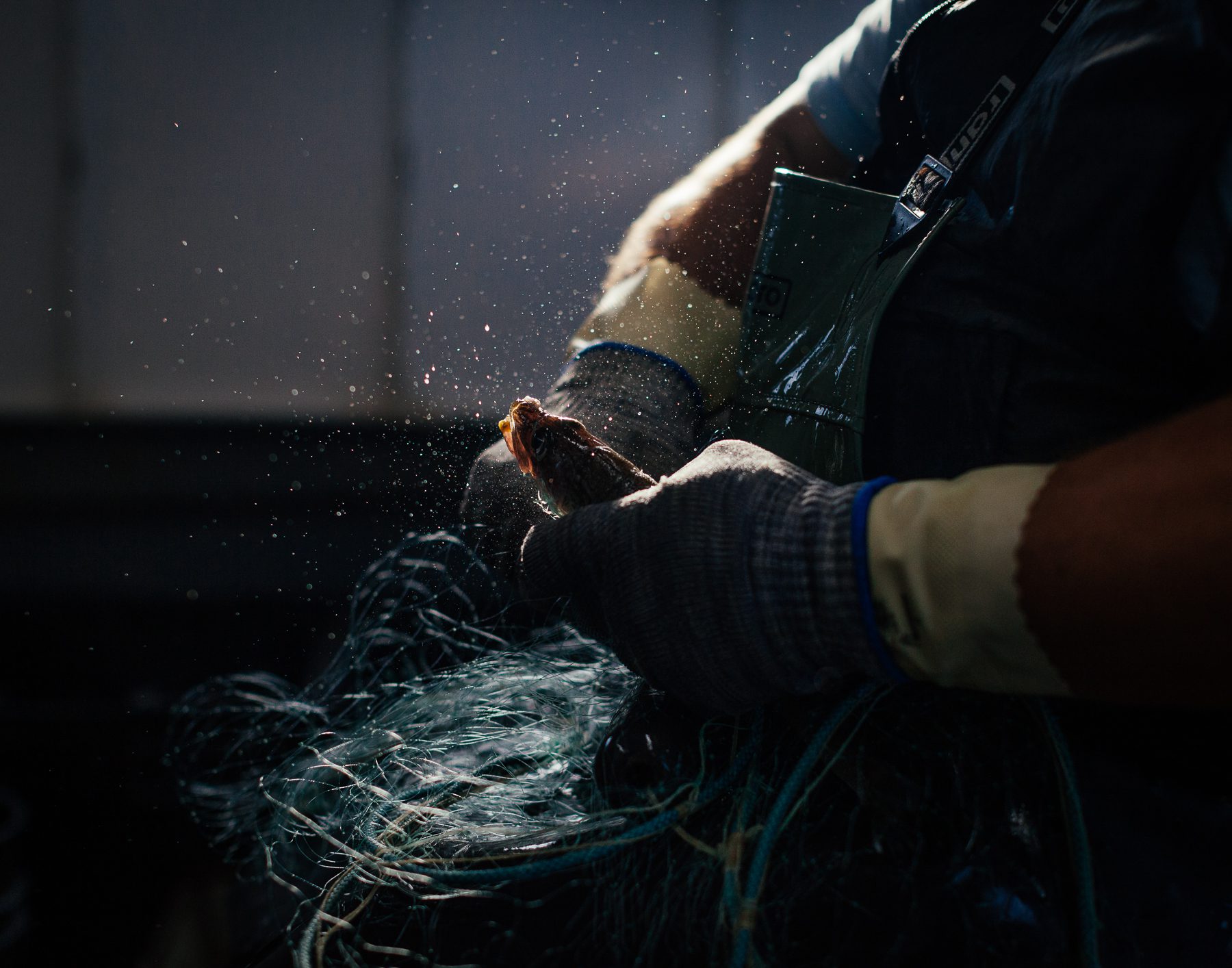
Picking is the one skill in commercial fishing that takes the most time to get the hang of. Todd says if you don’t know what you are doing, picking ends up being more like pulling. Speed matters, but “being a clean picker” is most important. Rob (bottom left) and the other pickers use the same type of pick that fishers have used for centuries. Rob’s father-in-law was a well-known trap netter on the west side of Point Pelee, and he has fished with Todd now for more than a decade.
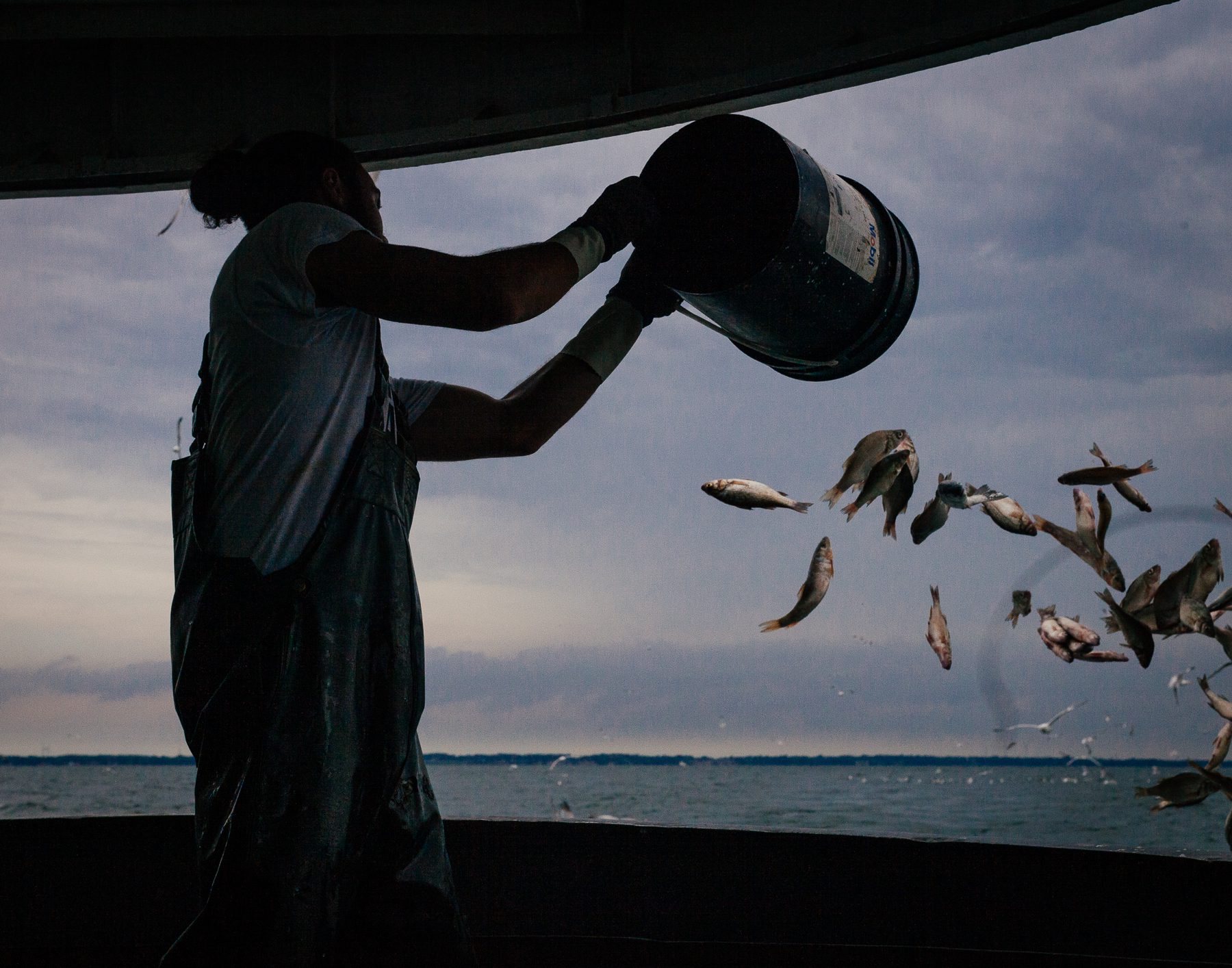
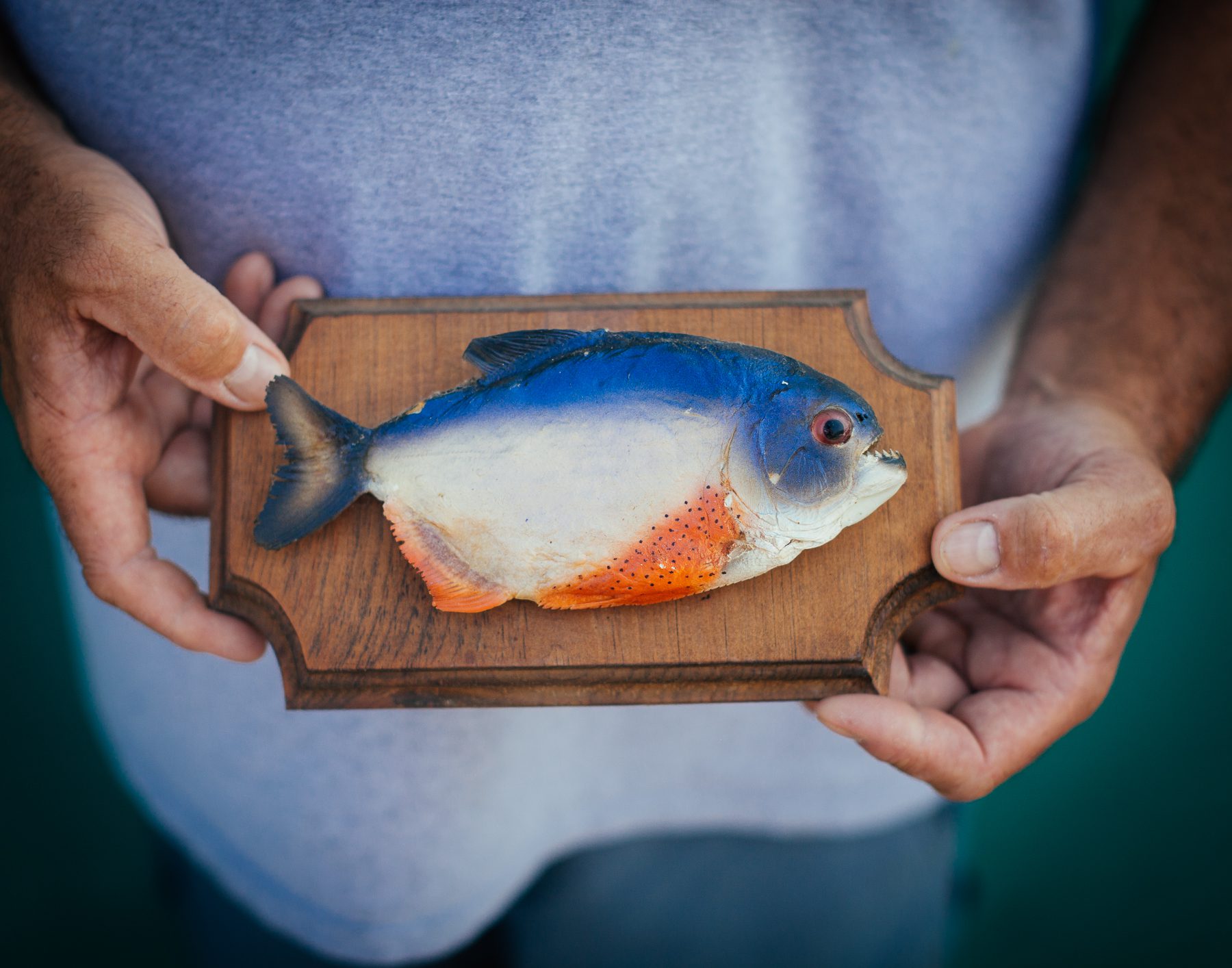
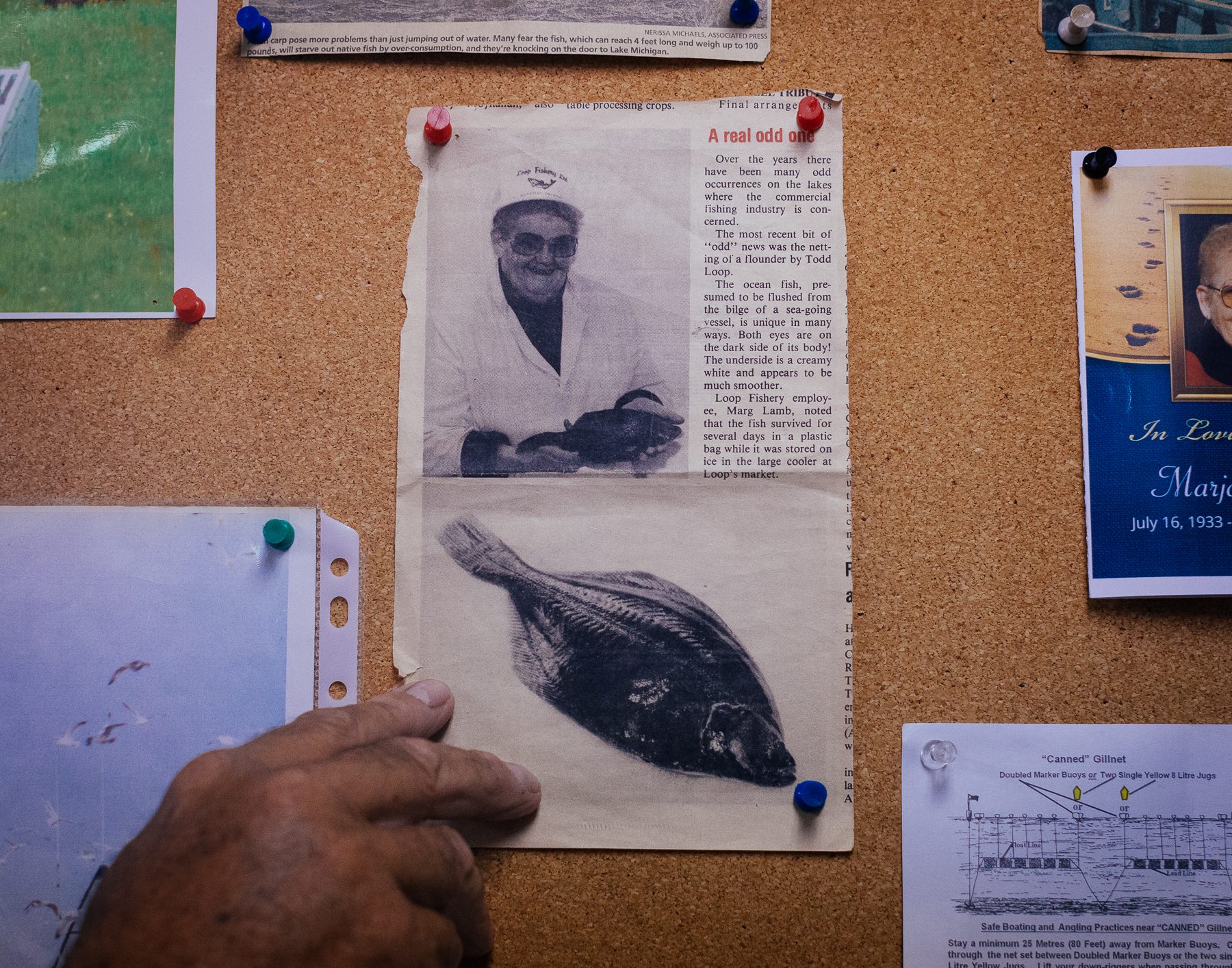
(top) While the fish species they are targeting make up most of their catch, they still have bycatch (fish species they aren’t trying to catch). These fish get dumped overboard and fed to the seagulls that trail the boat. (bottom left) The weirdest thing Todd has ever caught in Lake Erie was a piranha in 1990. He figures someone released it into the lake from their tank. (bottom right) He caught a flounder in 1988, which likely came from a ship’s ballast water, and it made the local news. Todd knows many people are worried about Asian carp invading the lake, but he says he has never caught one yet.
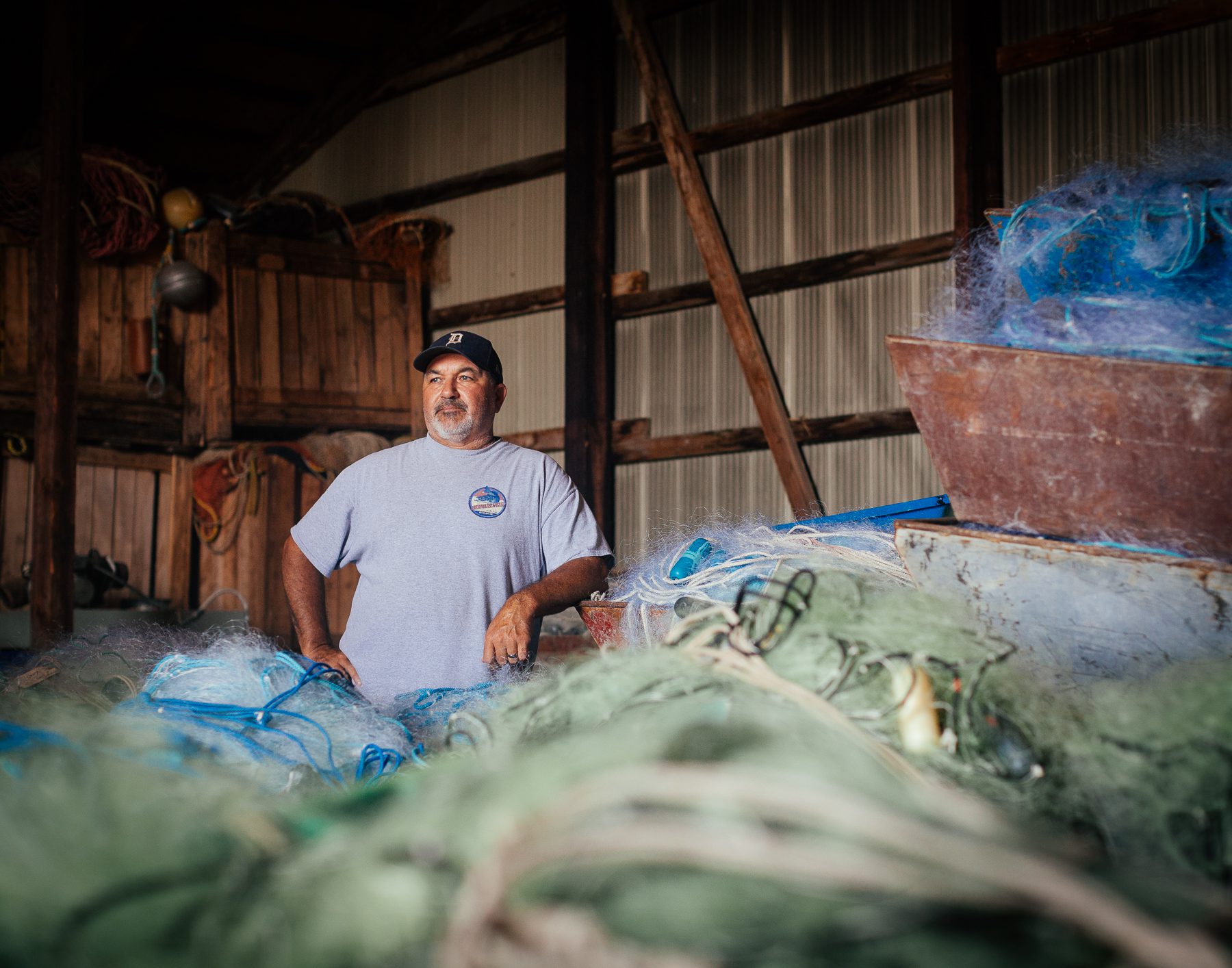
Todd figures that he has thousands of nets. Still, he feels like he never has enough ready to go. Over the years, Todd and his crew always made their nets with Canadian-made web. Eventually, they started making their nets with webbing from Asia, and over the past few years, they have been buying complete “ready-made” nets from there. Like other elements of 21st-century life, buying nets from overseas made sense. Still, Todd emphasizes that you don’t want to use cheap netting— “It’s better to spend the money.” These days, Todd says, you need new nets to catch anything. He remembers the days when you could get away with imperfect nets.
Most of Todd’s friends are already retired.
“I’m not ready to get off yet. I'm good for a couple more years anyway."
Loop Fisheries continues to be a family business. His wife Tracy has kept the company’s books in order for decades, and one of Todd’s daughters helps with retail. Still, none of his three daughters plan on taking over the boat. But his nephew Josh is one of Todd’s crew, and just got his captain’s papers.
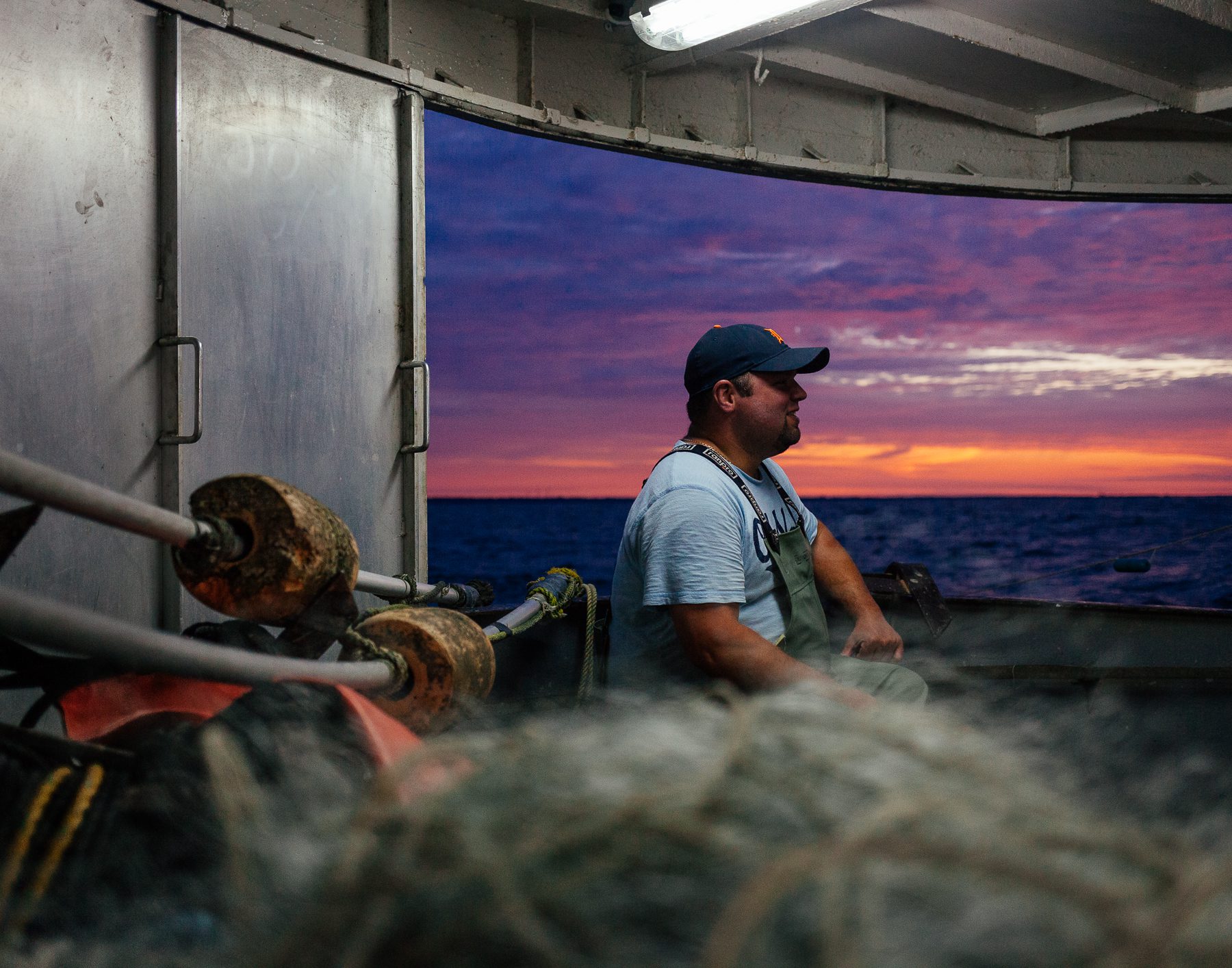
Todd’s nephew Josh jokes with the crew as the sun rises. Todd jokes that Josh is waiting for him to get out the way.
“Fishing is my livelihood. It supports the community and all the families that work in it.”
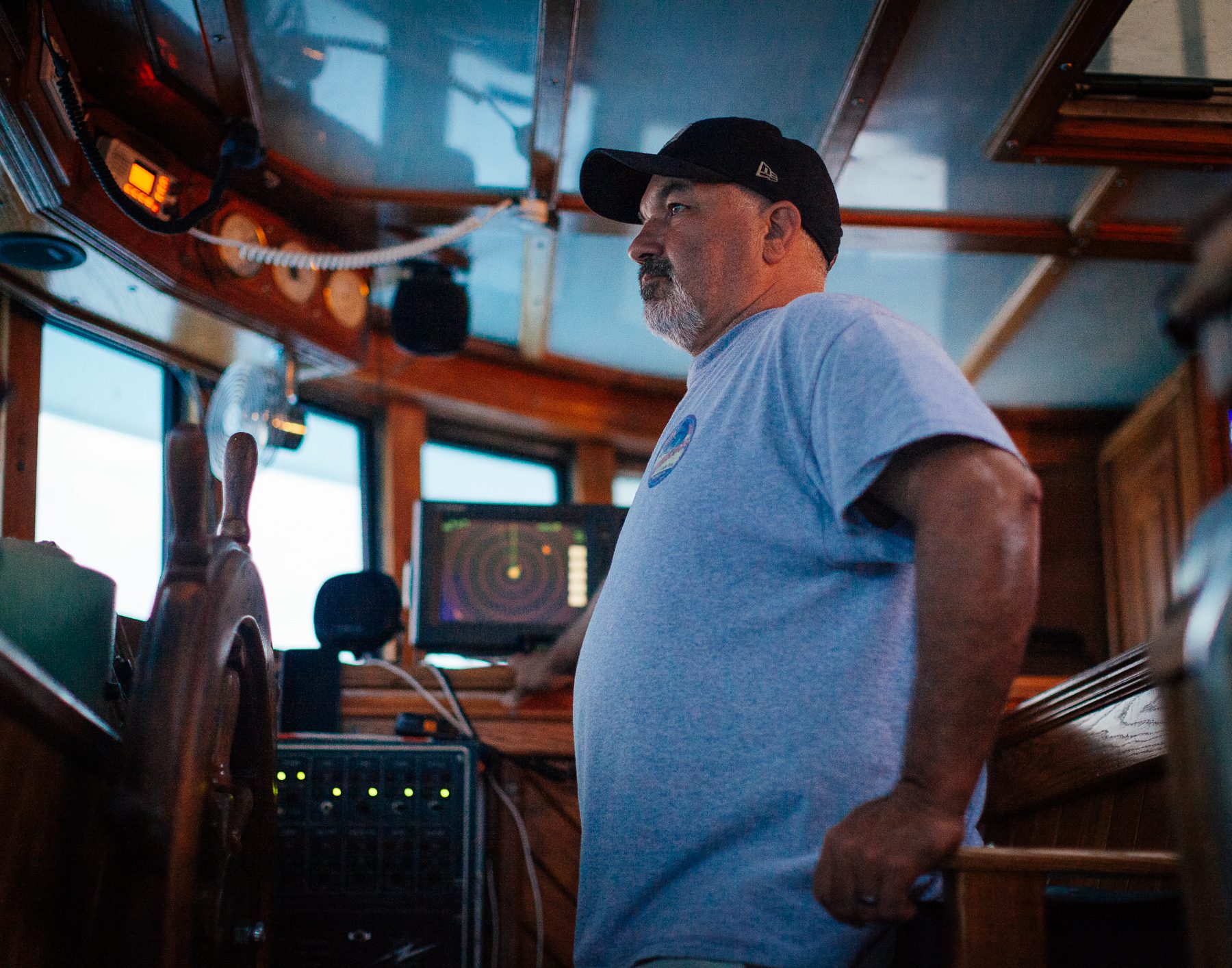
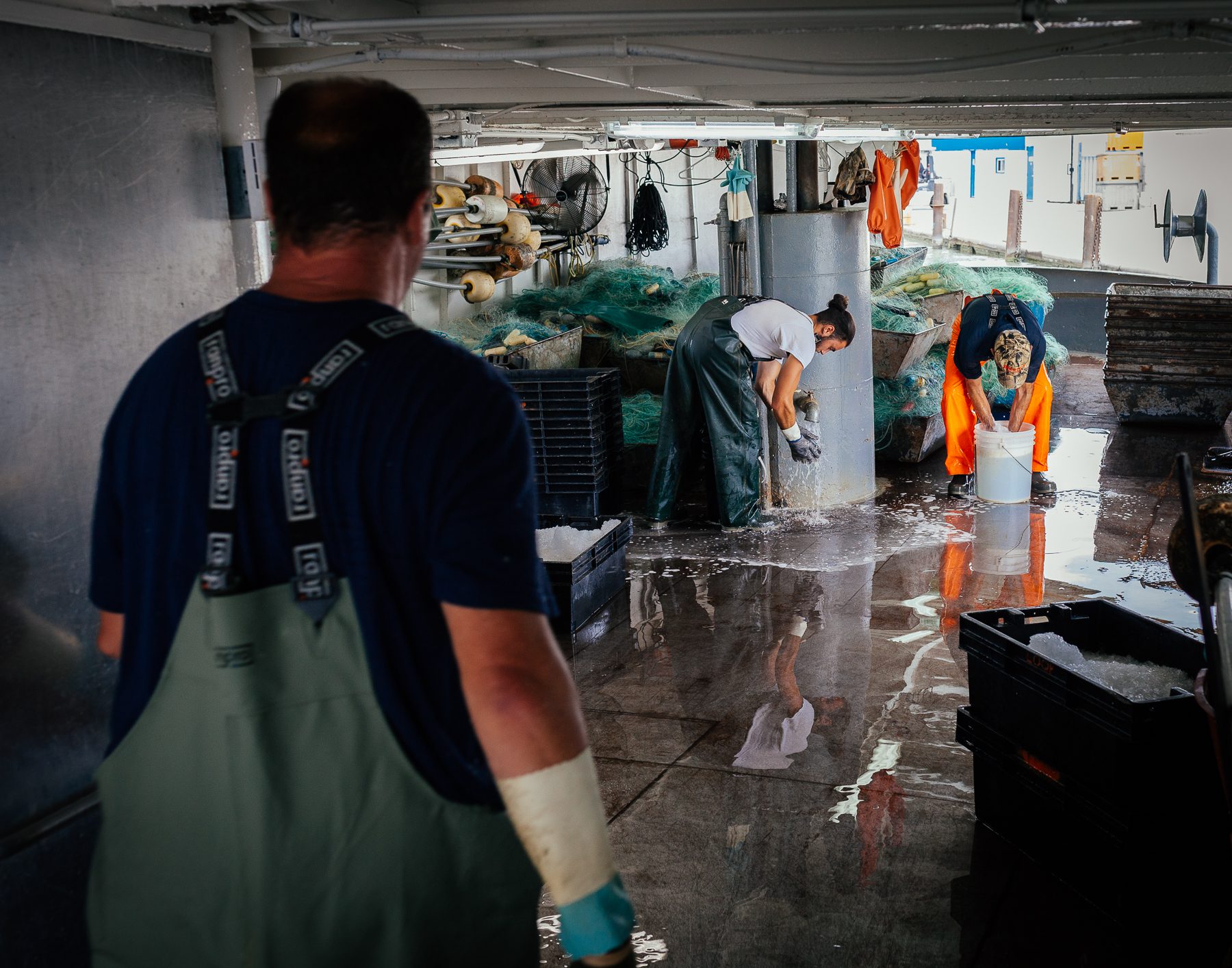
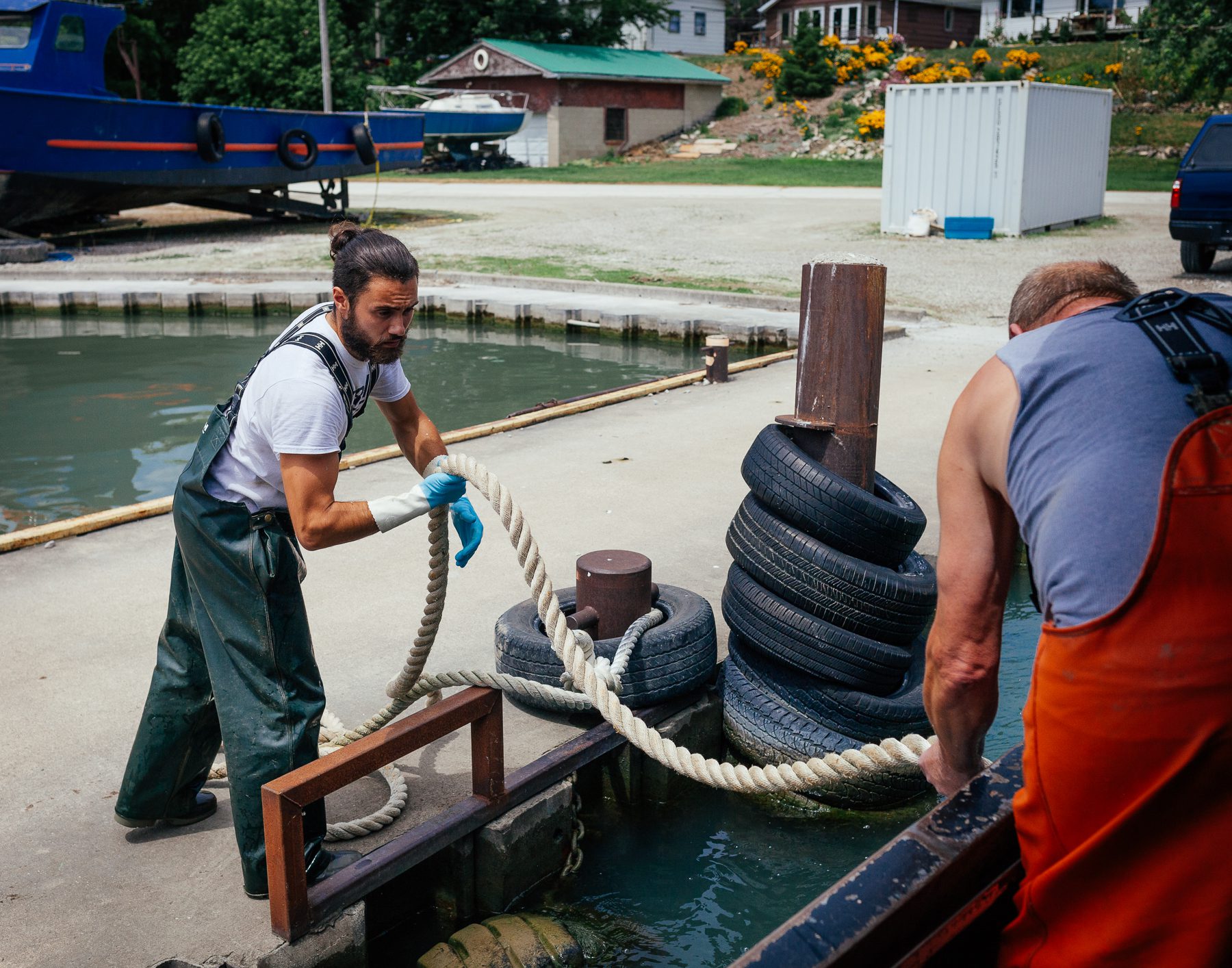
(bottom) The crew cleans down the boat as they return to port after a day of fishing out on Lake Erie.
Todd knows what it is like to have tough years out on Lake Erie. He does worry about the lake’s well-being and the future of the pickerel and perch fishery.
“All the algae bloom stuff. I don’t know where that is leading to, and that’s kind of scary. With the Asian carp coming in, that’s another threat. One big spill from one of these tankers, and they could shut us down. It is so shallow up here in this western end that something like that could ruin us.”
Read More
STORIES FROM THE LAKE
Patricia – Pelee Island
Take Action
Lake Erie and the millions of people who rely on it for their drinking water, local jobs, and so much more need your help.
The health of Lake Erie continues to decline. Action is needed more than ever to restore its health for current and future generations.
You can make a difference. Here’s how you can help protect the lake and support the people who are closely connected to it.
EXHIBITION BY: documentary photographer COLIN BOYD SHAFER in collaboration with ENVIRONMENTAL DEFENCE



